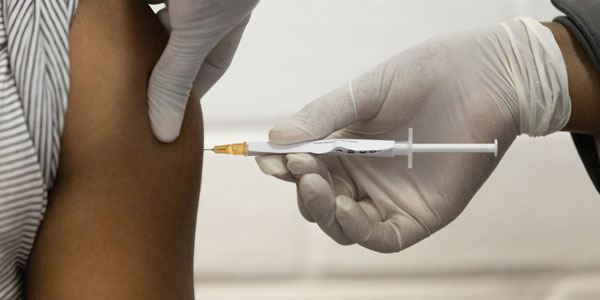
Covid-19 vaccination in pregnancy? Spoiler alert: It's safe. Get the jab!
A review of Covid-19 vaccines during pregnancy by Wits scientists shows that vaccination during pregnancy is safe.

A review of Covid-19 vaccines during pregnancy by Wits scientists shows that vaccination during pregnancy is safe.
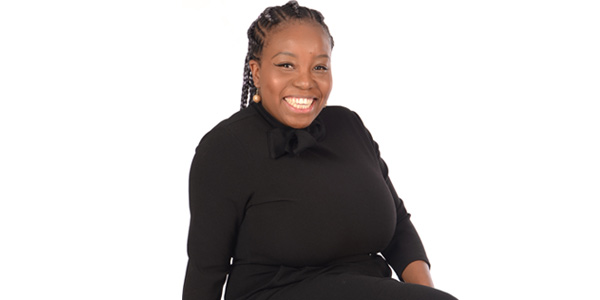
An empath and social justice agent for students, Thembelihle Dlamini is among many unsung Covid-19 heroes at Wits.
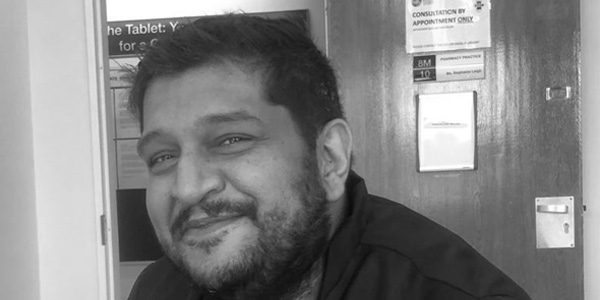
Initiatives such as the pharmacy set up in the Holy Trinity Church ensured that the homeless and elderly receive healthcare and essentials during lockdown.
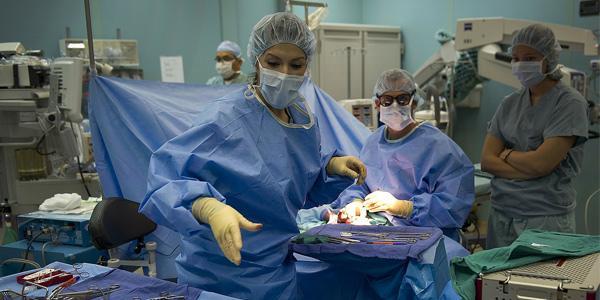
A global study has found that setting up ‘Covid-19 free’ hospital areas for surgical patients could save lives during the second wave of the pandemic.
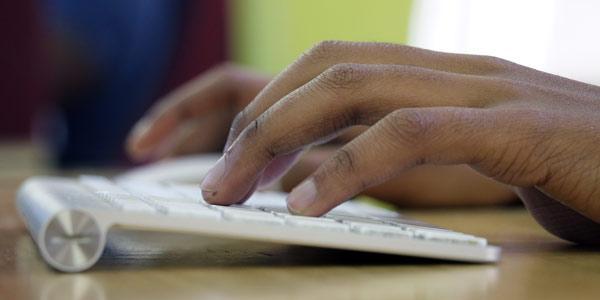
Crowdhelix is an internet tool designed to help researchers develop partnerships and collaborations.
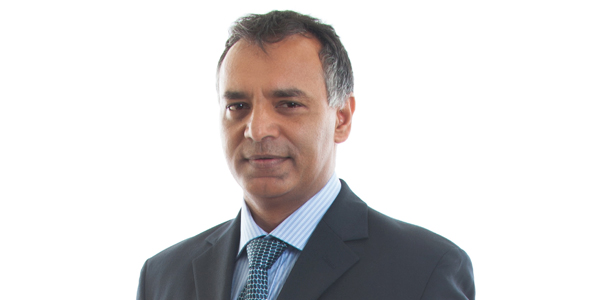
Best way to tackle COVID-19 remains physical distancing, substantially increased testing and quarantining.
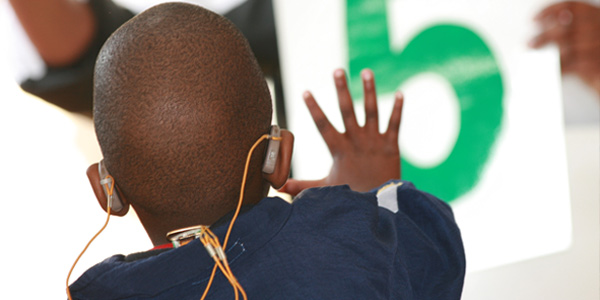
The Centre for Deaf Studies (CFDS) at Wits is contributing to society by keeping the Deaf community informed about the coronavirus pandemic.

The University’s wellness support services are here to help staff, students and the Wits community in dealing with the disruption of our normal lives.
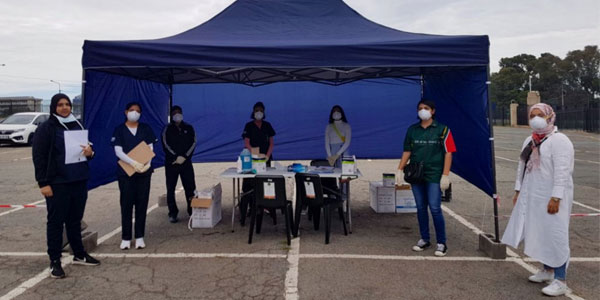
A new COVID-19 Testing Station at Wits, managed by Gift of the Givers, is open to patients who fit NICD criteria and are referred by a doctor.

A poster series to action South Africans on how to care of themselves and others.
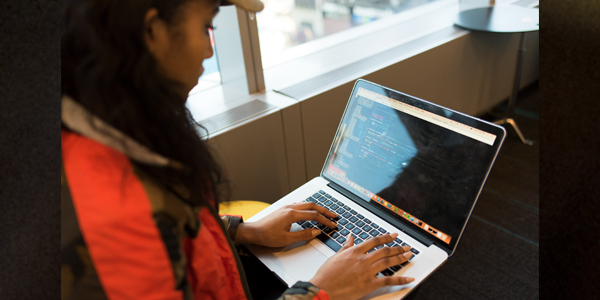
Message from the Deputy Vice-Chancellor: Academic regarding the resumption of the academic programme.

Message from the Deputy Vice-Chancellor: Academic on the resumption of the academic programme.
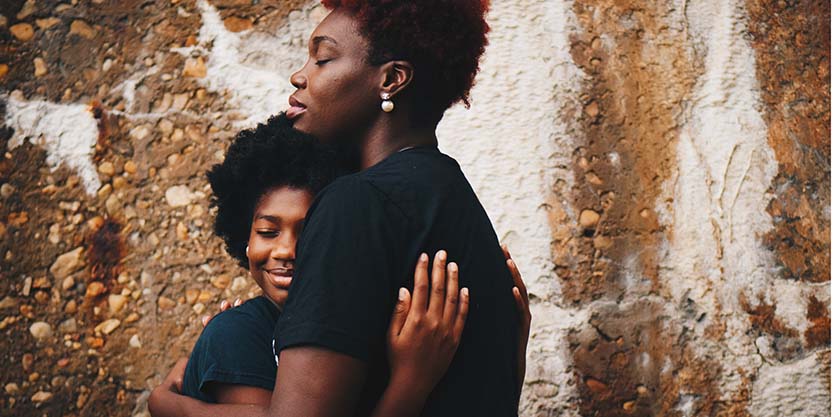
Strategies for parents to engage with their children at home during Covid-19 lockdown.
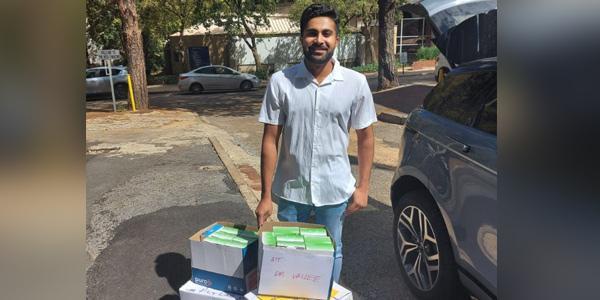
The Wits School of Molecular and Cell Biology has donated medical gloves for frontline healthcare workers at Chris Hani Baragwanath Hospital in Soweto.

50+ economists and others from Wits are part of a group of more than 78 who wrote an open letter urging President Cyril Ramaphosa for more significant action.
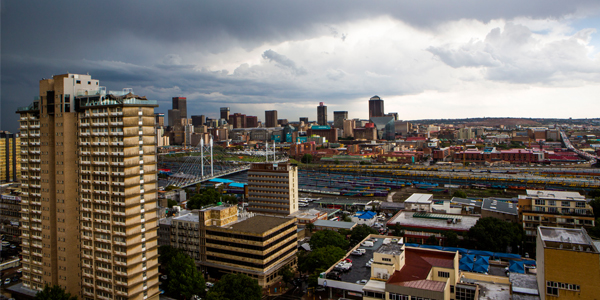
It would help if everybody comprehend that the world will not be the same after the dust settles on the pandemic.
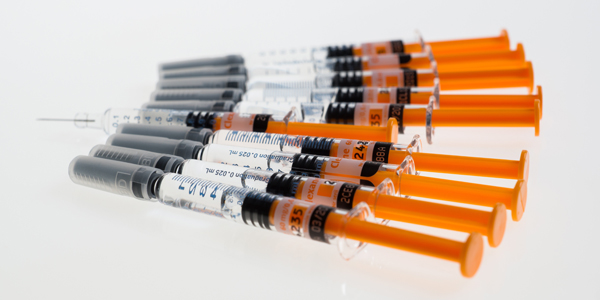
To stop economic destruction, we need to refocus vast resources from other productive activity – a truly grand prize might do the trick.
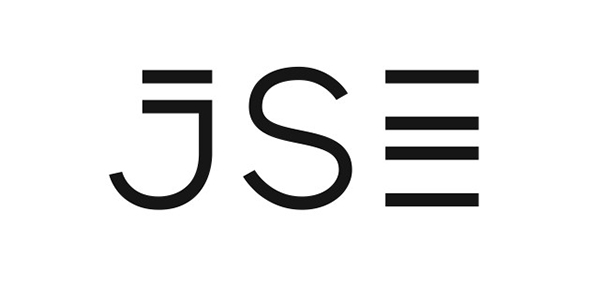
The virus has wiped billions from stock exchanges globally. Now is the time to re-evaluate and promote domestic private investment.
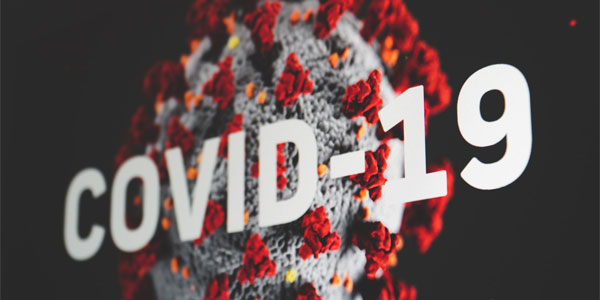
The Covid-19 crisis is first and foremost a health and humanitarian crisis is likely to have lasting impacts on how we live.

The coronavirus is an opportunity to end the war with nature.It’s a moment to be humble and realise our finitude in a wondrous and infinite natural order.
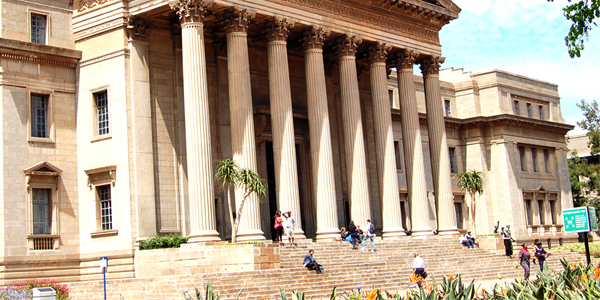
The role of essential staff during the national lockdown.
Prof. Habib speaks on living through the COVID-19 pandemic, and the Senior Executive Team’s (SET) decision to go into early recess and to evacuate residences.

Prof. Adam Habib addresses staff on living through the COVID19 pandemic and expresses his appreciation to staff for their contribution during this period.

Amongst the best in their fields, Wits experts are at the frontlines and behind-the-scenes against COVID-19, the respiratory disease caused by the coronavirus.
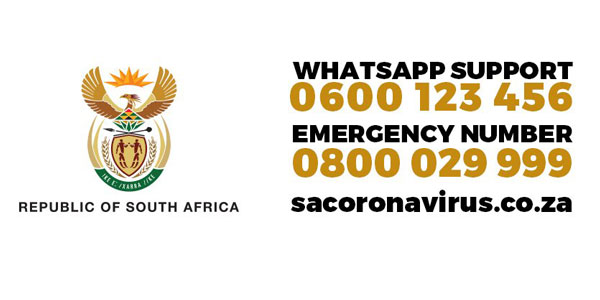
Government has released the early directives following President Cyril Ramaphosa’s address on Monday night.
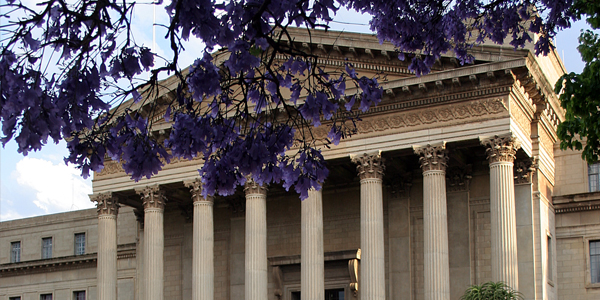
Message from the Senior Executive Team of Wits University.

Wits from the Senior Executive Team of Wits University.
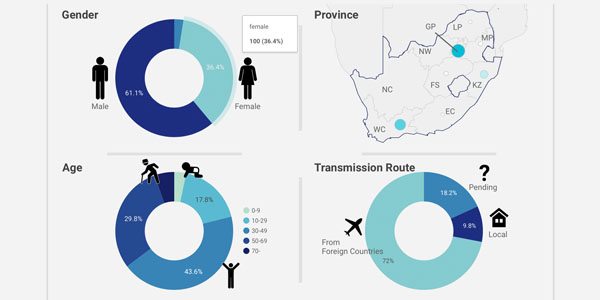
The dashboard is aimed at informing government, scientists, the media and general public with quick, easy-to-understand information on the current situation.

In times of a health crisis, such as the corona virus pandemic, health scientists should be encouraged to speak out.
Message from the Wits Senior Executive Team.

New self-sanitising surface coating will help to address infection control in hospitals, food processing plants and public transport surfaces.
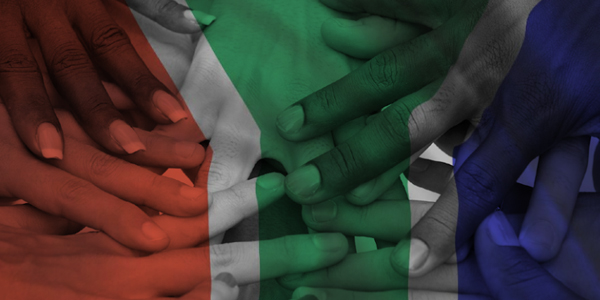
Why South Africa needs to actively engage all foreign migrants in its response to Covid-19.
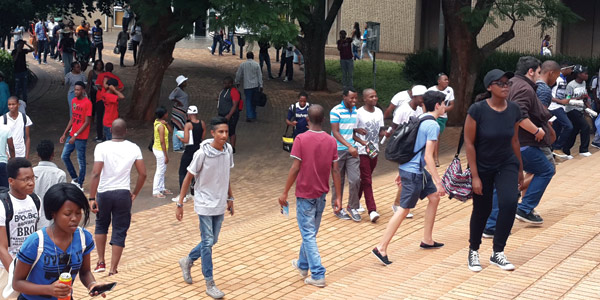
Message from the Wits Dean of Student Affairs.

Message from the Senior Executive Team of Wits University on the working conditions for staff members during the recess.

The High Court (Gauteng Local Division, Johannesburg) dismissed the urgent application by two students to extend the period for the evacuation of residences.
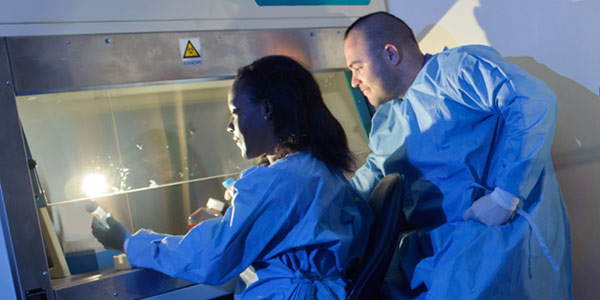
Answers to common questions asked by the Wits community.

Wits University will be in recess from Tuesday, 17 March 2020, four days earlier than scheduled.
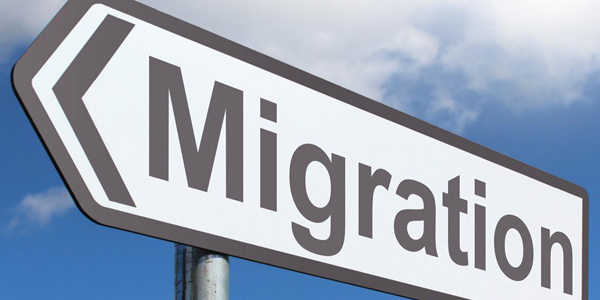
The sanctimony of moving from blaming foreign migrants to rendering them invisible in a critical public health moment will have implications for our response.
Wits announces measures to curb the spread of COVID-19.

Wits University has just been informed that the medical student who has been quarantined since last Wednesday has tested positive for the coronavirus (COVID-19)
Wits acts swiftly to manage student who came in contact with COVID-19 carrier.
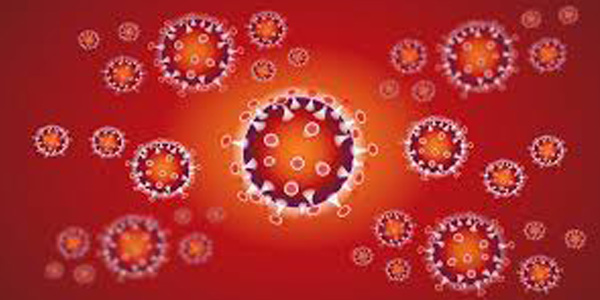
Cases of illness from the new coronavirus (SARS-CoV-2) disease, known as COVID-19, have been confirmed in more than 100 countries.

Hand washing is a tried and true, scientifically proven preventive strategy that reduces the likelihood of transmitting both viral and bacterial borne diseases.
- Wits University
Message from the Senior Executive Team of Wits University.
Dear Colleagues and Students
Following the announcement by the President of a national lockdown from midnight on Thursday, 26 March 2020, for three weeks, we all need to follow the directive of the President and take responsibility to stop the spread of the coronavirus. Despite the lockdown only coming into effect on Thursday, we still urge staff members to work from home as far as possible. Staff should only go into the office under exceptional circumstances. Once the lockdown is in effect, line managers will inform essential staff directly if they need to be at work and will provide them with a requisite letter in case they are stopped by authorities.
All students have left the residences aside from those who have made special arrangements with the Dean of Student Affairs (including senior medical students). The precise date on which the University will reopen and the format in which the academic programme will commence, will be announced later this week. Faculties will communicate with students as the academic programme transitions online.
Many staff members and students have also requested to know more about the technology and software available to enable them to work from home. We hope that this Q&A will assist you in working remotely from your mobile device.
Q. What software is available for staff and students?
A. The following software systems are available to staff and students:
Q. What if I do not have access to data?
A. Vodacom and Telkom have zero-rated Microsoft Teams in order for staff and students to access it free of charge. Vodacom, MTN and Telkom have also zero-rated other Wits sites.
But please note, the one issue that has been encountered, thus far, is that students should have some data on their phones in order to reach the zero-rated site. They will then not be charged for data used will in the site. If that fails, they can log a ticket at https://witshelp-ism.saasiteu.com/ and the ticket will be routed accordingly.
Q: What other support is available?
A: The Centre for Learning, Teaching and Development (CLTD) team is developing support material to help academics create meaningful online learning interactions. These resources will be shared in the "Dealing with Disruption" site on Wits-e. Academics can enrol themselves onto this project site. There are also faculty specific sites such as the “CLM Rapid Online Teaching Toolkit”. Please enquire with your respective Faculty Teaching and Learning Units on what specialised resources are available. The Microsoft educator community has many useful lessons and guides. Please sign-up to the community using your Wits credentials.
Q: How do I access SIMS and the iWits suite?
A. Staff members can access SIMS and iWits remotely, but must install a link to Wits’ Virtual Private Network (VPN).
Q. What is a VPN? Why do I need it? How can I access it?
A. Wits’ Virtual Private Network (VPN) allows staff and students to access private e-resources at Wits, which would otherwise not be accessible via commercial internet connections from their homes or mobile networks. To install the VPN, click here. Select the appropriate operating system for your computer or device to download a .zip file containing an installation package, as well as instructions.
Q: How do staff access email and the Intranet?
A: Staff can access these via the staff ICT resources section on the main Wits website. Use your normal login credentials. Please note that access to the Intranet requires a VPN.
Q. Who can I call for support?
A: The Wits ICT helpdesk is available via ithelp@wits.ac.za. You can also call the helpdesk on (011) 717 1717 or log a ticket online via Wits ITSM. Both staff and students can email the wits-e@wits.ac.za for help with wits-e.
Conclusion
Deans will be stewarding the transition to online teaching and learning in their respective faculties in the coming days. We understand that some staff and students may have anxiety whilst transitioning online. Wits ICT, CLTD and faculty staff will also be available to assist staff and students where required, albeit remotely. More details will follow later this week.
Keep safe.
SENIOR EXECUTIVE TEAM
24 MARCH 2020 (11:00)
- Wits University
Wits from the Senior Executive Team of Wits University.
Dear Colleagues and Students
This is an uncertain time for all of us – staff, students, members of the Wits community, and society. The sands are shifting daily and many of us are feeling anxious about what happens next – to our health and safety, livelihood, to our education, to our research, to our freedoms and to life as we know it.
Whilst we practice physical distance and social solidarity, this disruption also provides us with an opportunity to reimagine how we live, how we work and how we learn. It also allows us to exercise control over the aspects that we can change – and in this instance, how we can learn and work remotely.
Given the potential of a lockdown and uncertainty around movement in the months ahead, after a deliberative meeting (via Microsoft Teams) this morning, we agreed that:
Some of the issues that were discussed are reflected below, including:
We are still deliberating on a number of issues including the minimum requirements for online and distance learning and teaching (infrastructure, data, content modification) and the potential for introducing alternative assessments where applicable. A plan which details the form in which online teaching will take place will be shared in the coming days, in consultation with staff in the faculties.
Please send all your questions, suggestions and concerns to vco.news@wits.ac.za.
In the meanwhile, please keep calm, keep safe, and look out for our latest updates at www.wits.ac.za/covid19. We can overcome this global challenge together.
Thank you
SENIOR EXECUTIVE TEAM
23 MARCH 2020 (18:00)
- Wits University
The dashboard is aimed at informing government, scientists, the media and general public with quick, easy-to-understand information on the current situation.
An interdisciplinary team of researchers at Wits University has launched the most comprehensive data dashboard on the COVID-19 virus in South Africa to date.
The dashboard, that shows the latest statistics on how the virus is affecting the population of South Africa, is updated on a daily basis, using official statistics from both local sources, such as the National Institute for Communicable Diseases (NICD) and international sources such as the World Health Organisation (WHO). The statistics on aspects such as the cumulative confirmed cases in South Africa, the daily confirmed cases, relative increases of infections are presented in colourful, easy-to-interpret visualisations. Other statistics include infections by gender, province, age and transmission routes.
“We are experts in analysing and interpreting big data, and we believe that it is important that someone put this data together and present a bigger picture of the impact of the virus on the country,” says Professor Bruce Mellado from the Wits School of Physics, who initiated the project. The team working on the project includes computer and data analysts, engineers and physicists.
The dashboard is aimed at informing government, scientists, the media and the general public with quick, easy-to-understand information on the current situation. It is updated every day approximately an hour after the release of the official COVID-19 update from the NICD. As more data becomes available, more features will be added to the dashboard.
Mellado is in talks with several government departments to get them to recognise as well as to add to the database, in order to make it a powerful tool in the fight against the virus.
“Our team believes in the power of knowledge to solve complex issues, and we hope that our strong ties and cooperation between the scientific community, the executive and the public can help overcome challenges such as the COVID-19 pandemic,” says Mellado.
Link to the dashboard: https://datastudio.google.com/u/0/reporting/15817068-62f2-4101-8e0f-385e2ddd9326/page/1M
- Schalk Mouton
In times of a health crisis, such as the corona virus pandemic, health scientists should be encouraged to speak out.
As our lives are increasingly impacted by the global COVID-19 pandemic, a wide variety of information and disinformation is being spread. There is no shortage of news, “advice” and rumours being spread about the virus. And this is all natural. Every single person in the world has by now probably been affected in some way by the pandemic. In some ways, we are acting in the extreme, as can be seen by the panic shopping that hit retailers on Monday, after President Cyril Ramaphosa declared the pandemic was a National Disaster.
In response to the deluge of information, News24 reported on Wednesday that government had “effectively gagged epidemiologists, virologists, infectious disease specialists and other experts on Covid-19 with an instruction that all requests for comment about the state of the pandemic, the virus itself and its spread should be directed to the National Institute for Communicable Diseases (NICD)”.
The article quotes Ministry of Health spokesperson Lwazi Manzi, as saying: “the government had decided that all communication should be centralised to just a few voices: ministers, deputy ministers, MECs and, sometimes, the presidency.”
What this means, is that in this time of crisis, with a few exceptions, only government’s version what is happening with the spread of the virus is reaching the public.
According to Manzi, government wants to unify the message about the pandemic, and try to combat “fake news”.
“You can’t have people from Lancet, Ampath, Wits, all speaking to the media. There is a need to differentiate between authority and noise," she is quoted as saying. Scientists, she said, should be left alone to do their work, and not be pestered by journalists.
Since my first contact with the NICD as a journalist many years ago, I have always had the utmost respect for this institution. You could always rely on them to give you quick, relevant and expert opinion, often assisting in dispelling untruths about perceived threats and health risks. This is still true today. However, they don’t have the resources or capacity to deal with a constant stream of media queries. Relying on them as a single source of information might prove to be counterproductive.
If the government’s intention is indeed to try and prevent the spread of panic or fake news about the outbreak, this is exactly why scientists and experts should be allowed to speak freely and openly to the media and the general public. The best way for disinformation to spread, is to leave a void open for pseudo-experts and disinformation peddlers to fill the gap.
In today’s world of social media, an information gap will inevitably be filled. It is especially true in a crisis situation, such as the one we have. There is an increasing need for information. This provides the opportunity for someone to take advantage of this by spreading false information for their own gain. The only way to combat this is to put as much truthful, reliable, scientifically correct information as possible out there, and to provide constant commentary and expert opinions from scientists to the media and the public in general.
South Africa has some of the best experts on virology, epidemiology, infectious diseases and public health in the world. During this crisis, it is crucial that their voices be heard. It is they – and not some government minister or spokesperson – who can speak with true authority on their subjects. They should be encouraged to speak out, not gagged.
Scientists not only have a constitutional right to share their knowledge to the public, they also have an obligation to do so. Like most ministers, deputy ministers and their spokespeople, most scientists salaries are paid – not by the government – but by the taxpayers. The taxpayers have a right to get clear, correct information from the right people in this time of crisis.
My colleagues in the Wits university’s communication team have been overwhelmed in the by media queries looking for expert opinion, while experts and academics want to offer advice on how to best communicate their important messages on the pandemic. We actively encourage all our experts to speak out as much as possible, and provide all the necessary, relevant information that they can provide, on all available channels, including via the media. We have collated and shared as much information as possible on our dedicated COVID-19 mini-site on our website, and in the coming months will be frequently sharing information from our experts.
As communications professionals, we are acutely aware of the dangers of misinformation and fake news in times such as these. There are a lot of opportunists trying to spread fake news messages. It is these people who should be muzzled, not the country’s responsible, knowledgeable experts.
To muzzle scientists is to encroach on their constitutional rights of freedom of speech and academic freedom. It also contravenes the rights of the general public of access to information and a healthy environment. When you start gagging scientists in a time of a disaster, you are going down a slippery slope. Who will be the next to get gagged, under which circumstances? And, more importantly, who will be the decisionmakers, on who to muzzle, and who should be allowed to speak?
Schalk Mouton is a science communications professional working in the Wits communications team. He is a former journalist and news editor.
- Wits University
Message from the Wits Dean of Student Affairs.
Dear Students
We are living through a difficult time and we are doing all that we can to ensure the safety of our students, based on the advice that we are receiving from experts.
We would like to thank those students who have vacated their residences, in line with the call made by the University and the directive of the President, the World Health Organization and other experts.
Following this morning’s court order, which implored all students to follow the directives referred to above, the majority of students have now left our residences. We urge those who remain to vacate as soon as possible. Many have arranged to leave overnight and those with special challenges are being assessed on a case by case basis. Those who have requested assistance (including international students) from my Office will be advised in the next few hours as to the nature of the assistance that the University can provide.
In light of the steady rise in the number of people infected with COVID-19, the University urges all remaining students to leave immediately. This is in the best interests of the student body, the University community and the general public. Please note that all catering, cleaning, ICT and other services will be suspended as from tomorrow morning.
We have received many queries from students who are concerned about the submission deadlines for their academic work. The SET has agreed that these deadlines will be extended into April and that new deadlines will be communicated in due course.
We wish all students a safe journey home.
Mr Jerome September
Dean: Student Affairs
- Wits University
Message from the Wits Senior Executive Team.
Dear Colleagues and Students
We would like to inform the University community about the developments around the evacuation of students from our residences. As you know, this decision was made based on the advice of scientists and experts, who have indicated that Wits should evacuate residences while the risks are still low. This is in line with decisions made by other universities around the country.
As at 16:00 today, Friday, 20 March 2020, 85% of all Wits’ residents had left the University. Most of the remaining residents are due to leave this weekend, aside from those who have requested special assistance from the Office of the Dean of Student Affairs.
The University has put several measures in place in order to assist students as they make their way home.
Feeling anxious, worried or need help?
Students are reminded that the Wits Student Crisis Line is fully operational from anywhere in South Africa and in all official South African languages on 0800 111 331.
Staff counselling services are available via 0861 635 766 or dial *134*928# or send a ‘please call me’ to 072 620 5699 email asknelson@kaelo.co.za
The Department of Health’s WhatsApp number is 0600123456 and provides additional information about COVID19.
The NICD website (www.nicd.ac.za) is a credible source of information on COVID-19.
Conclusion
As advised by scientists and experts, we urge all students to leave the residences as soon as possible, aside from those who have made special arrangements with the Dean of Students. This is in the best interests of all students and is part of an official response to tackling the the COVID-19 global pandemic. At this moment in time, we have to think beyond our own interests and act in concert for the wellbeing of our community and broader society. We underscore the important statement made by President Cyril Ramaphosa last Sunday: “This epidemic will pass. But it is up to us to determine how long it will last, how damaging it will be, and how long it will take for our economy and our country to recover. It is true that we are facing a grave emergency. But if we act together, if we act now, and if we act decisively, we will overcome it.”
We wish all those who are travelling home a safe journey.
SENIOR EXECUTIVE TEAM
20 MARCH 2020 (17:00)
- Wits University
Message from the Senior Executive Team of Wits University on the working conditions for staff members during the recess.
Dear Colleagues
We live through uncertain times and the full impact of COVID-19 on our country and our campus, will only be felt in the days ahead. These are extraordinary times, requiring extraordinary measures that require our commitment to work together in order to ensure our collective interest and safety. isiZulu Version. Sesotho version.
The Senior Executive Team (SET) met today and discussed the working conditions of staff over the next ten days (20 March – 30 March 2020). The SET determined that:
The SET also clarified the following questions received from staff.
Q. Is the University closed?
A. No. The University is not closed – the mid-term recess has been brought forward and runs until 30 March 2020. We are responding to a national public health challenge, and we must continue to work, albeit from a different location where possible. The reason for the closure is not to stop work, but to ensure that we have the least number of people congregating in one place as possible.
Q. What happens from 30 March 2020? Why is this date not aligned to the announcement made by the Minister of Higher Education and Training?
A. The University is currently in recess until 30 March 2020. The precise opening date and the form in which we open is dependent on the evolution of the pandemic, engagement with others in the sector, and the preparations for the academic programme to be delivered online. We will communicate with staff and students within next week around the precise opening date, and the form in which we open. For now, notwithstanding communication from other parties, the University is officially in recess until 30 March 2020.
Q. Who needs to report for work in person?
A. All essential staff are required to report for work as required by your respective line manager and/or SET member in order for essential services to continue (like payroll functions) and to prepare to take the academic programme online next term.
Q. Who are essential staff?
A. A list of essential staff has been developed by managers and has been shared with SET members. The SET members will share these lists with the relevant Heads of Schools and line managers who will communicate directly with those staff members required to come onto campus, and those required to work from home. If staff members are requested to come onto campus by their line managers, they should heed these instructions. If staff do not adhere, the normal employee relations processes will apply. Academic staff members are required to continue working from home.
Q. Should I work from home?
A. Yes. The University is not closed and this is not a paid holiday. Anyone who is able to work from home, is encouraged to do so as per the agreement with your line manager and the relevant SET member.
Q. I am an academic. Should I come in?
A. Academics are required to work on preparations for the second term from home and to plan for the academic programme to go online if required in the second term. Researchers who have time-based or sensitive experiments or the like can come in but must understand that there will not be any cleaning, catering and other support services available.
Q. Are staff required to apply for leave?
A. Not yet. However, all managers are required to keep a roster of all those who come into the office and to record evidence of the work that their staff undertake from home. All matters related to leave and working conditions during this period will be addressed by our Finance, Human Resources and Legal Divisions, in consultation with unions and other stakeholders, and with the approval of Council.
Q. I have applied for leave. How will it be affected?
A. The leave remains and will not be impacted in any way.
Q. Will I be paid at the end of March 2020?
A. Yes. You will be paid on the 25th of March 2020. Stipends and associated claims will also be processed. Thank you to those who will come in to make this happen.
Q. What happens to administrative services at Wits University?
A. All administrative services within the University will resume from 30 March 2020, in a form still to be determined. All administrative deadlines due in the next ten days will be extended into April, or as appropriate.
Q. What technology can we use to work from home?
A. Look out for a communique from Wits ICT tomorrow on the relevant systems available to staff and students including learning management systems, Microsoft Office 365 (Teams is useful), Wits’ virtual private network and the online meeting technology available to staff and students.
CONCLUSION
We are living through a difficult time and we are doing all that we can to keep members of the Wits community and our society as safe as possible. We have an opportunity to be part of this collective project, to give of ourselves during this time of need, to bridge the divides that keep us apart, and to come together as a community to beat this pandemic. Let’s all play our part.
SENIOR EXECUTIVE TEAM
19 MARCH 2020 (17:00)
- Wits University
The High Court (Gauteng Local Division, Johannesburg) dismissed the urgent application by two students to extend the period for the evacuation of residences.
The judge implored the applicants and all other students to comply with the directives of the President, the World Health Organization and the NICD. The judge recognised that the University is following the directives of these bodies.
We are pleased with the outcome of the Court proceedings and we believe that the judgment is a vindication of decision-making informed by scientific evidence. It also allows institutions to act decisively and to work with government to manage and mitigate against this pandemic.
We are very disappointed with the applicants and others that have tried to undermine the effective management of this pandemic. Their behaviour is self-indulgent and reckless, and contrary to the advice of leading scientists in the country. Moreover, we are aware that this action was in part inspired by political machinations and we remain concerned that such conduct could undermine our country’s fight against the pandemic. It especially undermines the message of solidarity by our President to act as a collective in addressing COVID-19.
Individuals must be held accountable and we are disappointed that the Court did not award costs against the applicants in a context where their conduct has not only been frivolous and reckless, but resulted in the University having to expend unnecessary resources in legal proceedings when it could have been deployed elsewhere at this critical time. This is simply unacceptable and these individuals should be held accountable for their actions.
We will continue to facilitate the evacuation of the residences by our students and to follow the social distancing policy. We emphasise that while our recess has been brought forward and residences are closed, the Senior Executive Team is putting plans in place to ensure that the academic programme resumes in a manner which is conducive to our collective needs as soon as is possible.
Wits’ experts and scientists are also working directly with government to address this pandemic and contribute to the global search for a cure.
We encourage all stakeholders to look out for the collective good of the country. At this time, we must not only claim our rights but also exercise our individual responsibilities as citizens in the best interests of our community. We can only overcome this crisis if we act coherently and collectively as a country.
SENIOR EXECUTIVE TEAM
19 MARCH 2020 (11:25)
- Wits University
Answers to common questions asked by the Wits community.
Dear Colleagues and Students
We have been inundated with requests from students and staff who are concerned about their health and who are requesting to be tested for COVID-19. Here are some answers to the common questions.
AND
who may have returned from a high-risk country in the last 14 days
AND
who may have been in close face-to-face contact (within 2 metres) in a closed environment for an extended period of time with a confirmed or probable COVID-19 positive person.
[WATCH] World Health Organization explains who is at risk
Persons who have been in the same enclosed vicinity of a confirmed or probable COVID-19 positive person for an extended period of time should self-quarantine isolate for a period of 14 days. If symptoms develop during this period, they should call ahead and visit a healthcare professional, and follow their advice. These persons may require testing at this time.
People who may walk through the same corridor as someone who has tested positive for COVID-19 or a large classroom are at low risk and should monitor their health carefully. They do not require testing.
COVID-19 is diagnosed by a laboratory test known as the polymerase chain reaction (PCR) molecular test on a respiratory tract sample (e.g. sample from nose, throat or chest).
If you have no symptoms, self-monitor. If symptoms develop, go into self-isolation and then call ahead and visit your healthcare professional, and take their advice. They will refer you to a laboratory to be tested if required.
A. The list of high-risk countries changes daily. View the latest map here: https://experience.arcgis.com/experience/685d0ace521648f8a5beeeee1b9125cd
A. No. Only those students who meet the criteria above. All students who may have been at risk have already been identified and placed into self-quarantine. This group is being monitored and is receiving the support of the Faculty of Health Sciences and the Office of the Dean of Students Affairs.
A. No. Students do not need to be tested before leaving residences.
No. Experts in infectious diseases have advised that the University is currently in a low-risk moment and that taking the appropriate decisions now may enable the moderation of staff and student exposure to COVID-19 as we are still in the early stages of the pandemic. We believe that we are acting in the best interests of students and the broader public by bringing the mid-term break forward.
A. Try these credible sources:
National Institute for Communicable Diseases – http://www.nicd.ac.za/diseases-a-z-index/covid-19/frequently-asked-questions/
World Health Organization - https://www.who.int/news-room/q-a-detail/q-a-coronaviruses
Department of Health WhatsApp Line: 0600 123 456
Wits University – www.wits.ac.za/covid19
A. Students, call the ICAS hotline on 0800 111 331
Staff, call the AskNelson Hotline on 0861 635 766 or dial *134*928# or send a ‘please call me’ to 072 620 5699 or email asknelson@kaelo.co.za
SENIOR EXECUTIVE TEAM
17 MARCH 2020 (15:00)
- Wits University
Wits University will be in recess from Tuesday, 17 March 2020, four days earlier than scheduled.
Following meetings with the NICD, experts in infectious diseases and designated government departments, it has been determined that the University is currently in a low-risk moment and that taking the appropriate decisions now may enable the moderation of staff and student exposure to COVID-19.
As a result, the Senior Executive Team has made the following decisions:
[WATCH] Wits Vice-Chancellor Professor Adam Habib announces early recess
As stated yesterday, all graduation ceremonies will be postponed until further notice and more information will be sent to graduands in due course.
South Africa, and the higher education sector has never before confronted a pandemic on this scale. If we are to get through this period with the minimum impact on society, the Wits community and the academic programme, it will require an unprecedented solidarity from all stakeholders. This in principle means that we all need to reflect on how we can contribute to our institution, our country and the collective good of our communities during this time of crisis.
We are in a crucial moment in the life of this pandemic and it is important that we work as a collective for the benefit of our society. We urge all members of the Wits community to heed the words of President Cyril Ramaphosa: “This epidemic will pass. But it is up to us to determine how long it will last, how damaging it will be, and how long it will take for our economy and our country to recover. It is true that we are facing a grave emergency. But if we act together, if we act now, and if we act decisively, we will overcome it.”
Thank you
SENIOR EXECUTIVE TEAM
16 MARCH 2020 (20:00)
- Wits University
Wits announces measures to curb the spread of COVID-19.
The Senior Executive Team of the University of the Witwatersrand met on Sunday, 15 March 2020, and made the following decisions:
Remember to also make use of the NICD’s Coronavirus Emergency 24-hour hotline number and to visit the NICD’s website at www.nicd.ac.za if required. For those who are tested at independent laboratories, remember that these are preliminary results. All positive results must be verified by the NICD.
We will keep the Wits community informed as to plans from Tuesday onwards after consultation with the Department of Health and the Department of Higher Education and Training. In the interim, student queries should be directed to the Dean of Students via Jerome.September@wits.ac.za whilst employees with queries should email their line manager, Head of School or respective Senior Executive Team member.
Thank you
SENIOR EXECUTIVE TEAM
15 MARCH 2020 (20:00)
- Wits University
Wits University has just been informed that the medical student who has been quarantined since last Wednesday has tested positive for the coronavirus (COVID-19)
The student was asymptomatic and attended classes last Monday and Tuesday, without knowledge that the student had contracted the virus.
In light of this, the University has made the following immediate decisions:
The Department of Health’s WhatsApp number is 0600123456 and provides additional information about COVID19. The NICD website (www.nicd.ac.za) is a credible source of information on COVID-19.
The Wits Senior Executive Team is meeting this afternoon to decide on the way forward for the Faculty and all other University activities. An update will follow this evening. In the interim, we appeal to the Wits community to remain calm. Please be assured that we are managing this issue and making decisions based on the best medical advice available.
This is an anxiety causing time for the University community and the country as a whole. However, if we all take a pragmatic approach to this pandemic it is very likely that the country will get through this crisis. Importantly, it is everybody’s responsibility to protect themselves so that we also protect all other South Africans and most importantly the most vulnerable in our society.
We will get through this difficult period together.
SENIOR EXECUTIVE TEAM
WITS UNIVERSITY
15 MARCH 2015 (13:30)
- Wits University
Wits acts swiftly to manage student who came in contact with COVID-19 carrier.
The Wits COVID-19 management committee would like to advise the Wits community that a medical student has been quarantined after it was found that the student came into contact with a person who had been identified with COVID-19.
The student is being monitored closely and has not displayed any symptoms of COVID-19. The student has been screened and the test results are expected later today. However, as a precautionary measure the Faculty has cancelled the clinical activities scheduled for the student’s class today. All other activities continue as scheduled.
Further information will be made available when it becomes available.
Wits COVID-19 Management Committee
13 March 2020
- Wits University
New self-sanitising surface coating will help to address infection control in hospitals, food processing plants and public transport surfaces.
The Antimicrobial Coating Technology by PhD student Michael Lucas, now in its fifth year of development, is a novel solution to address the problem of nosocomial infections. These infections, acquired during hospital stays, are a significant and persistent issue faced by hospitals across the world.
“Infection control is an ongoing challenge in hospitals. Surface contamination and subsequent microbial transmission are known contributors to this. My design for a self sanitizing surface coating serves to address this growing problem, and the results are very promising. These antimicrobial coatings can be applied to high contact surfaces where there is a risk of contamination, including medical facilities, food processing plants and public transport surfaces,” says Lucas.

Metal coated plastics are an emerging field of research and development with a wide range of applications. The distinguishing features of Lucas' research include the novelty of multi-step and multi-process additive manufacturing through the use of cold spray and polymer 3D printing. These manufacturing techniques offer design freedom and manufacturing versatility. This means that manufactured parts can be retrofitted into existing hospital surfaces.
The coatings are made up of various metals with known antimicrobial properties, including combinations of copper, silver and zinc. The uniqueness of Lucas' innovative way of depositing the coatings is a competitive advantage that Wits University is protecting through a patent.
“Research is a process of exploration and it's this aspect that appeals most to me. I enjoy problem solving and seeing the application of research,” says Lucas, who won the prestigious Prix Hubert Tuor Innovation Award for his technology last year.
The most promising particle-embedded cold spray polymer metallised coatings were found to be effective self-sanitising surface coatings. Under simulated touch-contact conditions copper coatings on various polymer substrates, for example, repeatedly achieved complete microbial elimination within only a 15 minute contact period. These tests were conducted under laboratory conditions against a variety of dangerous pathogens that are found in hospital high contact surfaces including a multi-drug resistant Staph strain. Thus, the potential of these coatings for the mitigation of surface contact transmission of infections was confirmed.
Preliminary pilot studies validated this, using coated security access cards and a custom coated smartphone cover exposed to various healthcare associated environments within the University of Witwatersrand’s Medical School and adjacent Charlotte Maxeke Academic Hospital.“The next steps include verifying the safety of the coatings for the intended application and to assess the coatings’ efficacy in real world hospital high contact surface environments. This would be the start of taking the technology to market,” says Michael, adding that he sees an opportunity to turn his technology into a viable startup business.
The development of the technology is ongoing, having started during Lucas' undergraduate research project and continuing into his doctoral studies. Together with the now late Professor Ionel Botef from the Schoo l of Mechanical, Industrial and Aeronautical Engineering, Lucas has worked on further developments with Professor Sandy van Vuuren in the Wits Pharmacy and Pharmacology department. Financial assistance has been provided by the DST-NRF Centre of Excellence in Strong Materials (CoE-SM) and SITA Information Networking Computing UK.
The development of the technology is ongoing, having started during Lucas' undergraduate research project and continuing into his doctoral studies. Together with the now late Professor Ionel Botef from the Schoo l of Mechanical, Industrial and Aeronautical Engineering, Lucas has worked on further developments with Professor Sandy van Vuuren in the Wits Pharmacy and Pharmacology department. Financial assistance has been provided by the DST-NRF Centre of Excellence in Strong Materials (CoE-SM) and SITA Information Networking Computing UK.
Lucas graduated with a Bachelor of Science in Engineering (Mechanical Engineering) from Wits in 2016. Before graduating, he was asked to present his undergrad research into biomaterials via cold spray and 3D printed polymers at the 2015 Mechanical, Industrial and Aeronautical Engineering (MIA) annual valediction. He was subsequently awarded the best presentation in the Mechanical Engineering programme by the South African Institution of Mechanical Engineers (SAIMechE). Due to the novelty and sophistication of the development, his master's in Engineering was upgraded to a PhD research study under the title: Antimicrobial surface coatings via cold spray and 3D printing technologies, which he is currently completing at Wits University.
- Shabir Madhi
Cases of illness from the new coronavirus (SARS-CoV-2) disease, known as COVID-19, have been confirmed in more than 100 countries.
Coronaviruses are a family of viruses that cause illnesses that can range from a common cold to more severe diseases such as Middle East Respiratory Syndrome (MERS) and Severe Acute Respiratory Syndrome (SARS). The Conversation Africa’s Ina Skosana spoke to Shabir Madhi about the situation.
What percentage of people who get the virus are dying from it? Is this high compared with other infectious diseases?
There’s no straightforward answer to this question because the epidemic is still at an early stage. It all depends on what the denominator is, which influences the case fatality risk. And we’re still working with unknowns.
The current estimate is that between 1% and 3% of people diagnosed with COVID-19 die. The problem with this estimate is that the starting point is when individuals have become ill, rather than when they were infected. The actual number of people who are infected might be much higher than the actual number of cases that are presenting for medical care.
The implications of this are huge. For example, if the number of people who have been infected but haven’t gone on to develop the disease is high it would mean that the case fatality risk would go down.
The numbers in Iran point to further difficulties with calculating the fatality rate. Initial reports from Iran indicated a case fatality of 10%. This seems very unlikely. This indicates that a large number of cases were going undetected and possibly that mainly very severe cases were being investigated. When investigating very severe cases the case fatality risk is going to be higher.
A 1% fatality risk is moderate and is in the ballpark of other viruses such as respiratory syncytial virus associated with hospitalisation in children. It is, however, lower than the case fatality risk was for the coronavirus strains that caused the SARS epidemic in 2002 – which was 10% – and for MERS in 2013, which was about 35%.
Nevertheless, based on current knowledge, the case fatality risk for COVID-19 is higher than observed for seasonal influenza virus, which has a fatality risk of about 0.1%. Annually, seasonal influenza virus is estimated to cause up to 290,000 deaths globally. Currently, the global number of deaths due to COVID-19 is approximately 4,100.
Is the reaction overblown?
No. It’s warranted. This is because we don’t know how this epidemic is going to pan out. So even if the case fatality risk is very low, if a high percentage of a population becomes infected that low fatality risk could result in a large number of deaths. For example, if an epidemic involves 100 people with a case fatality risk of 10%, 10 people will die. But if an epidemic infects a million people with a case fatality risk of 1%, there will be 10,000 people dying.
The case fatality risk needs to be interpreted in the context of the number of individuals who are going to become infected to be able to understand the total impact of the epidemic. And right now we don’t know what percentage of the different populations will become infected.
Who is most vulnerable to dying from infection?
Current experience – which is largely driven by what has come out of China and more recently from Iran and Italy – is that people over the age of 50 seem to be more susceptible, particularly if they have underlying medical conditions or co-morbid conditions. These include cardiac problems (case fatality risk 10%), diabetes and lung disease (case fatality risk of 7%). People over the age of 70 have a case fatality risk of 14%.
The big unknown for Africa, particularly countries like South Africa, is what the impact will be on populations with a high prevalence of HIV and TB.
The epidemic has only broken out in countries with very low HIV prevalence, so we don’t know to what extent individuals living with HIV might have an increased susceptibility to severe disease. This is true of TB too. Because TB affects people’s lungs it means that people with the disease have a low tolerance threshold for an additional assault.
In the context of HIV, we have shown that even in the era of antiretroviral treatment, individuals with HIV still have a 10-fold greater susceptibility to severe influenza illness than the general population, and a higher case fatality risk. We expect there may be differences in susceptibility and outcomes for COVID-19 cases in settings such as South Africa.
What are the symptoms that should get me worried?
The symptoms are very non-specific and very similar to other viral infections like the influenza virus. Unfortunately there isn’t a particular trigger that’s different to any of the other viruses.
But people can be mindful of a few things. For example, their travel history to a place where the virus is circulating. Or whether the person has come into contact with someone who has visited one of the places where the virus has been shown to be circulating.
Of course this isn’t definitive.
The classical signs and symptoms one can look out for include a fever, cough, headache and myalgia (muscle pain). Again these are very non-descript.
What treatment is available?
Currently there’s no specific antiviral treatment to cure SARS-CoV-2 infection. Besides supportive care, no therapeutic agent has been proven to be effective in treating or improving the outcome of COVID-19 cases. There are clinical trials under way and others are being planned to evaluate different antiviral agents and other possible therapeutic options. The biggest concerns are about a more severe disease, where patients may end up with pulmonary damage which requires supportive care including supplemental oxygen and then might have to be put on to ventilator. Current estimates are that 15% of COVID-19 cases result in severe disease.
Most low- to middle-income settings have fragile health care systems that lack resilience against external shocks such as the demands posed by unexpected epidemics. These countries may lack the capacity to scale up curative services over a relatively short period of time. Such a scale-up of curative services was undertaken in Wuhan to complement existing curative services.
But a quick-fix solution to address an increase in demand for curative health-care services is unlikely in most African countries should SARS-CoV-2 start circulating widely on the continent. This is a culmination of the systematic lack of investment in health care in most countries. It’s not something that can be rapidly fixed in the middle of a pandemic.![]()
Shabir Madhi, Professor of Vaccinology and Director of the MRC Respiratory and Meningeal Pathogens Research Unit, University of the Witwatersrand
This article is republished from The Conversation under a Creative Commons license. Read the original article.
- Karen Hofman and Susan Goldstein
Hand washing is a tried and true, scientifically proven preventive strategy that reduces the likelihood of transmitting both viral and bacterial borne diseases.
Much of the media discussion about coronavirus revolves around diagnosis and management of suspected cases. But the first piece of advice that is essential for anyone worried about contracting the coronavirus is something your grandparents might have suggested: wash your hands. It’s at the top of the list of many of the players trying to prevent the spread of the disease. This includes the World Health Organisation (WHO), the US Centers for Disease Control and Prevention and other health authorities around the world.
But, ask the cynics, could preventing the spread of disease really be as simple as washing my hands?
The answer is yes. Because the science says so.
Hand washing is a tried and true, scientifically proven preventive strategy that reduces the likelihood of transmitting both viral and bacterial borne diseases. It has been shown to decrease both respiratory and diarrhoeal diseases in countries across the world. One review found that hand washing reduced diarrhoea cases by 30%. This is because it prevented bacteria being transmitted from faeces to the mouth.
It may seem like a low-cost – and incredibly simple – intervention. But not emphasising it would be a huge missed opportunity.
Read more: Why hand-washing really is as important as doctors say
The American Centers for Disease Control and Prevention recommends the following five‑step approach:
1) Wet your hands and turn off the tap (to save water),
2) Lather,
3) Rub your hands together for at least 20 seconds (possibly while singing Happy Birthday twice),
4) Rinse, and
5) Dry.
Do this multiple times a day, especially before eating. Using hand sanitiser is another option, as long as it is composed of 60% or more alcohol.
The benefits of hand washing over other preventive measures are clear: soap is easy to access. Both soap and an alcohol-based products for cleaning hands are cost effective interventions.
But millions of us don’t wash our hands as often and as well as we should. A study done in South Korea indicated that 93.2% of 2,800 survey respondents did not wash their hands after coughing or sneezing.
The current outbreak of the new coronavirus disease (COVID-19) was first reported on 31 December 2019 in Wuhan, China. By early March 2020 more than 90,000 people from 71 countries had been infected. More than 3,000 people have died so far. It is not clear what the fatality rate is and this may not be known until the outbreak is over – but it has been quoted as around 2.5% by the WHO.
Other diseases carry much higher fatalities. For example, tuberculosis claims the lives of 4,100 people worldwide every day. And the Ebola virus fatality rate is 50%.
Nevertheless, the spread of the new virus has set off alarm bells, with China famously building two hospitals in 10 days, cruise ships being quarantined and cities effectively being shut down.
The reason for the panic is that Corona-19 (more correctly named SARS-CoV-2) is a newly discovered virus. We don’t know exactly how infectious it is or who is at risk and why. As the WHO director-general said: we are entering uncharted territory.
Apart from hand washing it’s important to try not to touch one’s face and not shake hands. Face masks are really only useful for those who already have the virus or are caring with someone known to have the virus. Proper use of face masks is explained by the WHO.
Consideration should also be given to the fact that a run on medical masks could cause a shortage for public health-care workers who need them for protection against other diseases such as drug-resistant TB. This is particularly true in South Africa.
Research shows that hand washing isn’t just effective in preventing transmission of coronavirus. MIT recently conducted a study to identify the most effective mitigation strategy for hand hygiene that could contribute most to the reduction of global epidemic risk. Researchers used modelling and data‐driven simulations.
The study found that if 60% of travellers moving through airports worldwide had clean hands, global disease spread could be curbed by almost 70%. And if this rate could be maintained in only 10 of the busiest airports internationally, an astounding 37% of infections could be prevented.
Research has also shown that hand washing can prevent about 30% of diarrhoea-related sicknesses and about 20% of respiratory infections. Some scientists go as far as to argue that 80% of diseases can be prevented by proper hand washing.
Not everyone is convinced. Hand washing has been treated with scepticism as a significant disease prevention and eradication measure by some who favour “hard science interventions”.
This is not without precedent.
A Hungarian-born physician in the mid-19th century, Ignaz Semmelweis, was ostracised and shunned by his colleagues because he was so bold as to make a link between decreased maternal mortality and hand washing for doctors who went directly from the dissection halls to deliver babies.
Despite the growing body of research showing its effectiveness, hand washing habits are inadequate.
The MIT study assumes that 30% of people do not wash their hands at all after using a bathroom, and that correct hand washing is practised at such low rates that only 20% of people in airports actually have clean hands.
In South Africa, a national hand hygiene behaviour strategy estimated that only 20% of South Africans washed their hands with soap at critical times such as before, during and after preparing food, after going to the toilet, after sneezing or coughing, after touching animals, after changing nappies of babies, and after caring for an ill person.
Hand washing is simple and should already be part of everyone’s daily routine. If it became a habit for everyone in the world, it would not just prevent mortality and illness from coronavirus. It could be the start of a more viable strategy to prevent death from other bacterial and viral diseases.
While the full implications of this global pandemic are still unfolding, and a vaccine has yet to be developed, we need to act without delay using the one tool we already have.![]()
Karen Hofman, Professor and Programme Director, SA MRC Centre for Health Economics and Decision Science - PRICELESS SA (Priority Cost Effective Lessons in Systems Strengthening South Africa), University of the Witwatersrand and Susan Goldstein, Professor at the School of Public Health, University of the Witwatersrand
This article is republished from The Conversation under a Creative Commons license. Read the original article.
- Government Communications Department
Government has released the early directives following President Cyril Ramaphosa’s address on Monday night.
The Department of Government Communications and Information System issued the following information on Tuesday, 24 March 2020, about the National Lockdown due to COVID-19:
The lockdown will begin on the evening of Thursday 26 March 2020 at 23:59.
The lockdown will remain in force for 21 days.
All South Africans will have to stay at home until midnight on Thursday 16 April 2020.
The categories of people exempted from this lockdown are as follows:
• Health workers in the public and private sector,
• Emergency personnel,
• Security services – such as the police, traffic officers, military medical personnel, soldiers and,
• Other persons necessary for our response to the pandemic.
It will also include those involved in the production, distribution and supply of food and basic goods, essential banking services, the maintenance of power, water and telecommunications services, laboratory services, and the provision of medical and hygiene products.
There is no need for panic, as lockdown does not mean a shutdown.
People will still be allowed to get to shops and access essential goods and services but in small numbers.
It is up to all of us to minimise our movement.
Only undertake essential trips outside your home such as to get food, seek medical care or access supplies.
When leaving your home try and go out alone, plan your trip and get in and out of your destination as quickly as possible.
Practice hygiene when you go out, wash your hands when leaving home, do so again at your destination and before you depart for home.
Temporary shelters that meet the necessary hygiene standards will be identified for homeless people.
Sites are also being identified for quarantine and self-isolation for people who cannot self-isolate at home.
All sectors and citizens are working well together to fight the Coronavirus and we must continue to do so.
Aggressive containment measures are essential to ensure that the virus does not spread any further.
Please continue to exercise caution and avoid unnecessary travel.
We call on everyone to cooperate with government and other sectors to implement the measures.
Most shops and businesses will be closed.
The police, metro police, military and emergency services will continue to operate.
Health care services such as hospitals, clinics, doctors, pharmacies and laboratories will remain open.
Banks and essential financial and payment services, including the JSE will remain open.
Supermarkets will remain open so that citizens can continue to care for themselves and their families.
Petrol stations will remain open.
Companies that are essential to the production and transportation of food, basic goods and medical supplies will remain open.
This nationwide lockdown will be accompanied by a public health management programme which will significantly increase screening, testing, contact tracing and medical management.
Community health teams will focus on expanding screening and testing where people live, focusing first on high density and high-risk areas.
South African citizens and residents arriving from high-risk countries will automatically be placed under quarantine for 14 days.
Non-South Africans arriving on flights from high-risk countries will be turned back.
International flights to Lanseria Airport will be temporarily suspended.
International travellers who arrived in South Africa after 9 March 2020 from high-risk countries will be confined to their hotels until they have completed a 14-day period of quarantine.
We have set up a Solidarity Fund, which South African businesses, organisations and individuals, and members of the international community, can contribute to.
The Fund will focus efforts to combat the spread of the virus, help us to track the spread, care for those who are ill and support those whose lives are disrupted.
The Fund has a website – www.solidarityfund.co.za – and contributions can be deposited via the fund.
The Fund will be administered by a reputable team of people, drawn from financial institutions, accounting firms and government.
To get things moving, government is providing seed capital of R150 million and the private sector has already pledged to support this fund with financial contributions.
We will be spending money to save lives and to support the economy.
We must applaud the commitment made in this time of crisis by the Rupert and Oppenheimer families of R1 billion each to assist small businesses and their employees affected by the coronavirus pandemic.
We will be assisting businesses in the informal sector such as spaza shops.
Registration is now open, on www.smmesa.gov.za, for small and medium-sized businesses that require help during the coronavirus crisis.
The department of Small Business Development has a debt-relief fund for small businesses.
Small businesses affected by the outbreak of the coronavirus will be required to produce proof of negative impact as a result of COVID-19.
We will further be assisting small businesses to avert job losses through the Small Enterprise Development Agency (SEDA).
Government has urged malls and retailers to consider rent and payment holidays to tenants negatively affected by the lockdown.
Government calls on everyone in the country to avoid panic buying.
We are aware that many South Africans are worried about the impact of the coronavirus on essential supplies and food in the country.
As government, we are doing everything we can to ensure that we have enough food and all essentials we need.
Government has had discussions with manufacturers and distributors of basic necessities, who have indicated that there will be a continuous supply of these goods.
Let us be considerate and responsible to ensure that we have enough for everyone especially the most vulnerable in our society.
All grants will continue to be paid.
To alleviate congestion at payment points, old age pensions and disability grants will be available for collection from 30 and 31 March 2020, while other categories of grants will be available for collection from 01 April 2020.
All channels for access will remain open, including ATMs, retail point of sale devices, Post Offices and cash pay points.
The actions we are taking will challenge us as a nation.
But we are convinced that the cost of not acting now would be far greater.
In the days, weeks and months ahead our resolve, our resourcefulness and our unity as a nation will be tested as never before.
Let us all play our part and ensure that we emerge stronger and more united.
It is important that you stay connected via the phone, social media or email.
Maintain your networks and speak to friends or family regularly.
Keep doing enjoyable and relaxing activities such as reading, pc, board or card games, social networking or watching television.
Stay informed by getting the facts, not rumours or fake news.
Engage children in your care in creative ways; create fun learning activities, play games and try to keep their daily routine going.
Stay active by doing simple exercises within your home or garden.
Or create an exercise plan specifically to suit your environment.
- Wits University
Amongst the best in their fields, Wits experts are at the frontlines and behind-the-scenes against COVID-19, the respiratory disease caused by the coronavirus.
Eminent academics at Wits University in disciplines including epidemiology, medicine, public health, biomedical engineering, governance, and others, are the unsung heroes leading the charge against COVID-19.
The pandemic galvanized President Cyril Ramaphosa on Sunday, 15 March 2020, to invoke a state of disaster in South Africa, and then a national lockdown effective midnight, Thursday, 26 March 2020.
There is hope against this viral pandemic, however.
In concert with the National Institute of Communicable Diseases (NICD), the Department of Health, and the South African government, an army of heroic scientists at Wits are helping to understand, predict, and contain COVID-19, manage the public health and socio-economic impact, and develop treatment and care regimens.
The Wits heroes mentioned here represent just a fraction of the University’s community of academic, professional, and support staff who all are working tirelessly and contributing in multiple ways to mitigate this state of disaster.
We salute you all.
-600x300.jpg)
The advent of COVID-19 prompted the Institute of Plumbing South Africa (IOPSA) to contact Wits for an expert to deliver a Q&A webinar for their members. Given the requirement of taps and plumbing for hand-washing, hygiene and sanitation against the virus, coupled with social distancing, quarantining and isolation protocols, plumbers were understandably concerned. Manderson participated in a 1.5-hour long Q&A session for IOPSA. Watch the PIRB Breakfast Tech Talk – Virus Q&A webinar.

In this podcast, Vearey discusses how South Africa’s impending winter, an historical HIV-AIDS pandemic, and xenophobic attitudes combine to generate surprising and unexpected responses to Covid-19.
Madhi is the immediate past Director of the NICD and former President of the World Society of Infectious Diseases. He has consulted to the WHO in the fields of vaccinology and pneumonia and to the Bill and Melinda Gates Foundation on pneumonia.
Watch Madhi explain how coronovirus enters the body. Read why pregnant women are not more prone to contracting COVID-19.
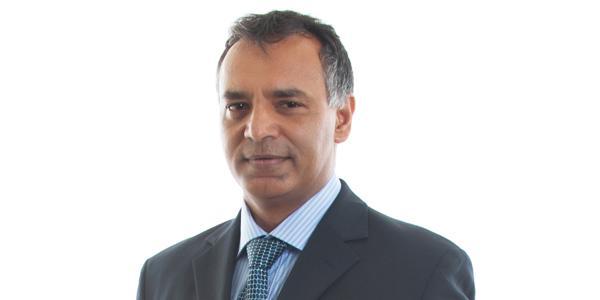
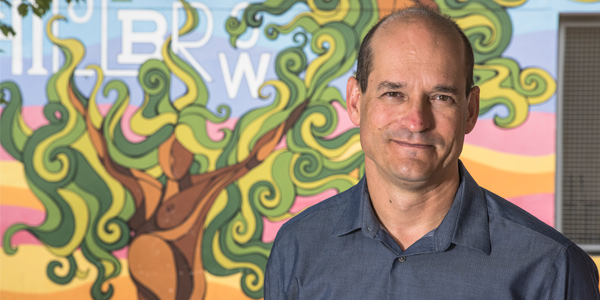
Professor Feroza Motara is Academic Head of Emergency Medicine in the School of Clinical Medicine at Wits and at Charlotte Maxeke Johannesburg Academic Hospital - where the first COVID-19 patient in Gauteng was treated. Motara has since December 2019, when news of the virus broke, been preparing her team and the hospital to care for the ill. Read Motara’s comments about how healthcare workers on the frontline of the pandemic are coping. “We’re in the profession because there is that dedication and commitment. You still have to go to work and do what you need to do,” she says.
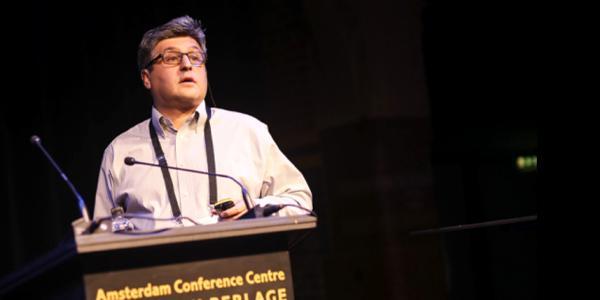
Hofman, with Susan Goldstein, Deputy Director of PRICELESS SA, wrote one of the earliest articles advocating hand-washing, which has since become COVID-19 protocol.
“The COVID-19 crisis is first and foremost a health and humanitarian crisis that we are all living through, which is likely to have lasting impacts on how we live. It is also likely to have a lasting impact, in the long term, on how we conduct our economic lives”, says Valodia. Read his analysis of the risks on economic inaction of COVID-19.

In the Faculty of Science, Head of the School of Molecular and Cell Biology, Prof. Marianne Cronje and her team took the initiative to synthesise virus-killing surface disinfectant and provided limited quantities of this disinfectant freely to University workers ahead of lockdown. The production plant has now been shifted to PIMD, while the school retains scientific oversight.
In the school’s Protein Structure Function Research Unit, Prof. Yasien Sayed coordinated the donation of 56 boxes of protective gloves to healthcare workers at the Chris Hani Baragwanath Hospital, after a Wits medical intern mentioned the shortage. Gloves and other PPE (personal protective equipment), such as masks, are critical to preventing infection.
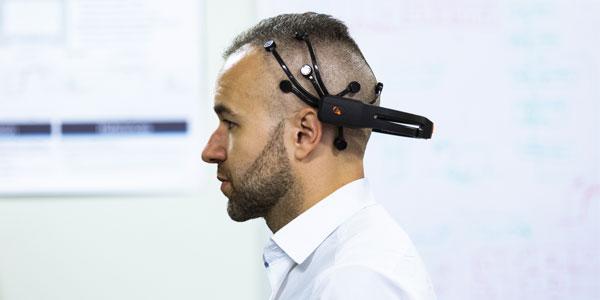
- Wits University
Prof. Habib speaks on living through the COVID-19 pandemic, and the Senior Executive Team’s (SET) decision to go into early recess and to evacuate residences.
The target date for Wits to reopen is 20 April 2020, in line with other universities in the higher education sector, but this is dependent on how the pandemic evolves. The mode in which the second block will open is likely to be online and students are thus advised to prepare to go online. Professor Habib addresses issues related to the digital divide, access to smart mobile devices and data, and the University’s agreements with ICT providers to zero-rate sites. Wits has reached out to broadcasting houses to determine if they can provide a solution to reach the 10% of Wits’ students who do not have access to smart mobile devices. This figure is based on the results of a comprehensive biographical questionnaire conducted annually by Wits. Faculties are also exploring a range of other possibilities to ensure that all students are appropriately supported.
Read the latest Wits updates at www.wits.ac.za
- Wits University
Prof. Adam Habib addresses staff on living through the COVID19 pandemic and expresses his appreciation to staff for their contribution during this period.
The target date for Wits to reopen is 20 April 2020, in line with the rest of the higher education sector, but this is dependent on how the pandemic evolves. The mode in which the second block is likely to be online and staff are thus advised to prepare to take teaching online with the support of Wits ICT, the Centre for Learning, Teaching and Development, and Faculty Teaching and Learning units. Students will also require additional support when contact teaching resumes in the form of additional lectures, tutorials and boot camps, as appropriate.
The video addresses issues related to the digital divide, access to smart mobile devices and data, and the University’s agreements with ICT providers to zero-rate sites. Wits has reached out to broadcasting houses to determine if they can provide a solution to reach 10% of Wits’ students who do not have access to smart mobile devices. Faculties should also explore other practical ways in which this can be achieved.
Read the latest updates at www.wits.ac.za
- Wits University
The role of essential staff during the national lockdown.
MESSAGE FROM THE SENIOR EXECUTIVE TEAM
Dear Colleagues
Please note the University’s position on the role of essential staff during the national lockdown period:
1. Staff that are not essential services staff and are able to work from home during the lockdown period are required to work;
2. Staff that are not essential services staff and are not able to work from home but would ordinarily be required to work are not expected to come to campus and work; and
3. Staff that are essential services staff are required to work on a rotational basis where appropriate.
In terms of Section B(1) of Annexure B of the amended Regulations issued in terms of the Disaster Management Act, 2002 on 25 March 2020 (“the Regulations”) the following categories of staff are considered essential services staff:
a. Medical Services;
b. Animal Care Services;
c. Financial Services necessary to maintain the functions of the payments environment;
d. Laboratory Services;
e. Cleaning, Sanitation and Waste Removal Services;
f. Security Services;
g. Critical Maintenance Services; and
h. Staff assisting with accommodation for essential services staff.
The relevant line managers, who have been appropriately authorised, will be in contact with employees who form part of essential services with a plan on how operations will be expected to continue during the lockdown period. Essential services employees will be issued with a formal letter and permit from the University which authorises them to leave their places of residence to attend to work.
The University will ensure that the proper precautions are taken in the workplace to mitigate against the risks identified in the context of COVID-19.
The Senior Executive Team is finalising a protocol around leave and other arrangements. This will be shared with organised labour and staff in due course.
Once again we thank all staff for their contribution to the University and society during these exceptionally difficult times.
SENIOR EXECUTIVE TEAM
26 MARCH 2020 (16:00)
- Jo Vearey
The sanctimony of moving from blaming foreign migrants to rendering them invisible in a critical public health moment will have implications for our response.
Before Covid-19, the South African field of migration, health research and advocacy meant investing energy in countering prevailing, unfounded negative public and political discourse that incorrectly blames foreign nationals for the failures of the South African public health system.
This dangerous, xenophobic and racist rhetoric positions certain migrants who have travelled across the country’s borders as “contagious” and as importers of infectious disease. This scapegoating, in addition to the various structural challenges faced by foreign migrants (including difficulties in accessing the documentation required to be in the country legally), has resulted in a plethora of negative outcomes that affect everyone in South Africa. One such result, of particular importance in the time of Covid-19, is the challenges that foreign nationals reliant on the public healthcare system face when trying to access the services to which they are legally entitled; we need to think carefully about the implications of this for an effective national, and regional, response to Covid-19.
Numerous evidence-informed calls have been made for ensuring that migrant and mobile populations are included in the development of responses aiming to achieve universal health coverage in South Africa, the Southern African Development Community (SADC), and globally. Such calls are about far more than the right to good health; they are about implementing a public health approach that will address the political and social determinants of poor health, including those that result in poor access to healthcare. In turn, such a public health approach aims to support the goal of improving health for all.
The fear, however, is that South Africa and SADC may now experience the public health consequences of xenophobia, racism and blame.
South Africa is currently making difficult decisions about how best to “flatten the curve”, determining the most appropriate interventions to slow down the spread of Covid-19 and protect the most vulnerable in our society. Yet there is a notable absence of visible engagement with the very population who have, until now, been unfairly placed at the forefront of many South African debates relating to a struggling public healthcare system and a high prevalence of communicable diseases, notably HIV and TB.
This hypocrisy – of moving from blaming foreign migrants to now rendering them invisible in a critical public health moment – will have implications for our response to Covid-19. It is essential that we effectively include foreign migrant populations in our programming. A failure to do so risks devastating impacts not only for foreign migrants, but for all in the South and southern African population as a whole.
Don’t get me wrong: I think that the National Institute for Communicable Disease (NICD) is doing a stellar job in a difficult time. But this is about more than the role of the NICD alone. We need to follow the advice of Dr Tedros Adhanom Ghebreyesus, Director-General of the World Health Organisation (WHO) and enact a “Whole of Government, Whole of Society” approach.
And this includes the Department of Home Affairs thinking carefully about its role and responsibility in the time of Covid-19; for example, what are the public health implications of DHA’s approach to border management and requirements for asylum seekers to renew their permits every 3-6 months?
With Dr Aaron Motsaledi in place as the minister of home affairs – a former minister of health and medical doctor – this should be an obvious way to go, but recent history has told us otherwise and it is now time to turn the tables. We need SADC member states to be bold and develop regional responses. Now is not the time – we don’t have the time – for diplomacy. Political differences in what a regional health approach should look like need to be set aside in order to ensure we have cross-border Covid-19 responses in place.
A public health approach is not only relevant in the time of an epidemic, it is based on principles of justice, equity and respect. Now, more than ever, we need to enact these values. We need to target interventions to those who have been left behind. Evidence generated over the past few decades, which has been regularly communicated and shared with key decision-makers, service providers, and the wider public, clearly indicates that there are populations in South and southern Africa who have been left behind in our public health planning. This includes certain groups of foreign migrants, sex workers and others working in the sex industry, and members of the LGBTQI+ community.
In addition, we know that while there have been gains made – mostly attributed to the actions of civil society and public health advocates – in the provision of health interventions to residents of informal settlements and hostels, as well as to those who are incarcerated in prisons and within the Lindela detention centre, we know that these populations remain left behind in our preventative and curative health responses.
HIV and TB are concentrated in these spaces, the result of persistent structural and political determinants of poor health, placing these populations at an increased risk of the worst health outcomes associated with Covid-19. People reliant on overcrowded public transport and housing solutions can do little to effectively practice social distancing or self-isolation. It is especially ironic that – among other groups – the very population who, until now, have been considered responsible for poor health in South and southern Africa are being left-behind: foreign migrants.
Whether the apparent lack of consideration of foreign migrants is a result of their continued exclusion in public health planning, or due to the initial cases of Covid-19 identified in South Africa being imported from outside of the African continent, is irrelevant. Perhaps the tables have turned and recognition of the ways in which international tourist travel can be associated with the spread of infectious diseases has been brought to light, challenging and perhaps even silencing, at least for now, the pervasive blaming of foreign migrants for the health challenges faced in South Africa.
Jo Vearey is an Associate Professor and Director of the African Centre for Migration & Society (ACMS) at the University of the Witwatersrand. She is also Vice-Chair of the Migration Health and Development Research Initiative (MHADRI). This article was first published in the Daily Maverick.
- Jo Vearey and Sally Gandar
Why South Africa needs to actively engage all foreign migrants in its response to Covid-19.
It is a well-established fact that for infectious disease control measures to stand any chance of success, they need to reach everyone. This is no different in the case of Covid-19 in South Africa, yet our response to controlling the spread of the virus, and protecting those most vulnerable to infection, continues to exclude marginalised foreign migrants.
Our response to more privileged international tourists and visitors, and those in South Africa for the purposes of work and study, has, however, been far more proactive. Covid-19, as with any other communicable disease, knows no borders and its spread within South and southern Africa is inevitable. We need to slow down the spread of infection so that our region’s already over-burdened and struggling health systems have a chance to respond.
On Sunday 15 March 2020, President Cyril Ramaphosa announced the National State of Disaster in terms of the Disaster Management Act, outlining a number of drastic steps to try and curb the spread of Covid-19. On Wednesday 18 March 2020, some of these actions came into effect, one being a range of inward travel restrictions implemented by the South African Department of Home Affairs (DHA).
These restrictions – designed to reduce the spread of Covid-19 by supporting its containment – are applicable to inbound travel from countries that DHA has defined as “high-risk” – those where there is ongoing, the community-level transmission of Covid-19 as per the daily situation reports published by the World Health Organisation (WHO).
Under the International Health Regulations (IHR), the decision to implement any restrictions on inbound travel is a sovereign one, meaning that any given country can choose which countries to include – or not – within their respective travel restrictions. Travel restrictions are, themselves, matters of “health diplomacy” and states must balance the need for an effective public health response to the control of infectious disease with the negative impacts of restricting travel, which can include detrimental effects on the movement of goods and disruptions to social structures.
While there is evidence to suggest that travel restrictions can be effective at the start of an infectious disease outbreak by delaying the spread of disease and – importantly – allowing for the implementation of national preparedness plans, once community-level infections become more established the positive impact of travel restrictions lessens. An example of the negative consequences of travel bans includes a report from the Minister of Health, Dr Zweli Mkhize, who indicated on Thursday evening (20 March) that Covid-19 test kits on their way to South Africa had not yet arrived due to the cancellation of international flights.
The current travel restrictions are applicable to air, land and seaports of entry, and interventions implemented include closing 35 of South Africa’s 53 land borders, reducing the number of seaports where crew and passengers can disembark from ships, and restricting entry to individuals travelling from or through countries deemed “high risk” by the DHA.
In fact, the DHA has now prohibited entry of all foreign travellers coming from, or via, high-risk countries, regardless of pre-existing visa or visa waiver agreements. Visa waiver agreements with medium-risk countries are also suspended. This applies to persons holding passports who would usually be exempt from requiring a visa to enter South Africa, or who would usually obtain a visa upon arrival.
Citizens of countries the DHA has deemed high or medium risk – which corresponds to many European countries and the US – who hold a valid visa, and who wish to remain in South Africa, can extend their visas, as per Immigration Directive 7 of 2020, dated 17 March 2020. Such persons “will be allowed to re-apply for such visa” subject to certain requirements, and visas valid to 31 July 2020 may be issued. If these foreign nationals do not meet all the requirements, they may be able to apply for a waiver subject to further requirements.
In addition, the directive allows for people from these high-risk countries whose visa has expired since 1 December 2019, to “re-apply for such visa”; they will be exempt from the usual conditions associated with “over-staying” on an expired visa. How the bureaucratic processes regarding these applications will be managed remains to be seen but it is going to place further pressures on an already struggling DHA.
While these efforts by the DHA are welcomed as part of a national and international solidarity in response to Covid-19, we have serious concerns about who we are leaving behind and the resultant risk for the health of all who live in South and southern Africa.
Key here is to ask what these special measures – particularly in relation to visa extensions and “the right to remain” – mean for foreign migrants currently in South Africa who have travelled from neighbouring countries that are not (yet) considered high-risk. Presently, citizens of European countries and the US currently in South Africa are protected by the new Immigration Directive, but it is silent on foreign nationals from the region whose visas may have expired. This group of migrants are likely to be afraid to test or report to others that they are unwell for fear of arrest, detention and deportation, with particularly worrying implications for contact-tracing.
In Monday’s media conference, the Minister of Home Affairs, Dr Aaron Motsoaledi, spoke of the importance of “international solidarity”, acknowledging that South Africa has more cases of Covid-19 than neighbouring countries and, as a result, has a responsibility to protect countries elsewhere in the SADC region.
The minister also indicated that the choice of the 35 ports of entry that will be closed, was motivated by the aim to “stop the virus from moving through our borders”. Motsoaledi stated that they would be “putting up a lot of higher walls in this war” (presumably against Covid-19) and this was clearly no metaphor as we now see a R37.2-million wall being built along the border between South Africa and Zimbabwe. To date, Zimbabwe has not reported any cases.
On Thursday evening, during a Q&A session about Covid-19 with the South African Medical Association, the minister of health stated that South Africans must recognise that neighbouring countries do not pose any risk to South Africa. Rather, it is our infection rates that pose a risk to them.
Regardless of the seemingly contradictory positions of the two medical doctors currently steering our response to Covid-19, R37.2-million is being spent on a border wall. Is this the most appropriate use of taxpayers’ money? How many test kits could be purchased for the same amount? Intensive care beds? Respirators? Personal Protective Equipment (PPE) for frontline healthcare workers?
Each Covid-19 test done by the National Institute for Communicable Diseases (NICD) costs the state R300. That means that the amount spent on the fence would fund 124,000 testing kits. The private pathology labs are charging between R900 and R1,400 for the test. The amount spent on the fence would thus fund between 41,333 and 39,333 testing kits at private laboratory rates.
Similarly, if one looks at wages, the living wage calculator indicates that a living wage in South Africa is R6,570/month. The amount being spent on the fence would equate to assisting 5,662 persons with a living wage for one month to try and ameliorate the impacts that the Covid-19 pandemic may have. A further comparator that we can use is the SASSA Older Persons Grant, which many people across South Africa rely on to survive. This grant amounts to just over R1,780 per month. The R37.2-million to be spent on a fence, would provide for the equivalent of 20,898 old age pension grants, or if made available to persons for a three-month period to try and ameliorate the impacts of Covid-19 on the economy, it would assist over 7,000 people for that period. These may seem like small numbers when we think of the numbers of the South African population that will be impacted by Covid-19, not necessarily by being infected but by losing their income, but one thing is certain, building walls – or a fence – will help no one.
It is not the time to implement such securitisation measures (many of us would argue that there is never such a time); the spread of Covid-19 will not be stopped by a border fence. The effects of such a response are likely to cause further harm to all in South Africa and the region by forcing individuals – particularly those currently holding an irregular status – to cross the border through other means, resulting in migrants being further distanced from any public health intervention.
Urgent measures are required to ensure we include all foreign migrants – not only tourists and international travellers from high- and medium-risk countries – in our response to Covid-19. There needs to be assurance that, regardless of their current documentation status, no foreign migrant will face any sanctions when engaging with state authorities, including when seeking healthcare or being included in contact tracing. Without this, our efforts to reduce the spread of Covid-19 will fail.
Jo Vearey is with the African Centre for Migration and Society (ACMS), Wits University. Sally Gandar is with the Scalabrini Centre of Cape Town. This article was first published in the Daily Maverick.
- Vishwas Satgar
The coronavirus is an opportunity to end the war with nature.It’s a moment to be humble and realise our finitude in a wondrous and infinite natural order.
Covid-19 has pushed an already weak and crisis-ridden global economy over the edge. Massive value has been erased from crashing stock market prices. Many commentators are talking about the return of economic conditions similar to the great financial crash of 2007-2009. The most powerful countries in the world from China to the US have ground to a halt.
This pathogen, possibly from delicate creatures like a pangolin or a bat, has engendered the worst global pandemic since the Spanish flu (1918-1920), which killed 100-million people. Death rates are going up globally. Right-wing nationalists in Europe and the USA have been confused as this virus has jumped racist border regimes, and infected all populations. Citizens are no longer concerned about their racist messages, but rather about how to survive.
Governments all across the world are seized with the challenge of protecting their populations, at least that is what it seems like given the people-centred rhetoric. The geo-politics of Covid-19, engulfing the entire globalised world in its rapid spread, is also a shot across the bow of carbon capitalism. Elite consumption of exotic animals, at high prices, in Wuhan, China unleashed the swift and lethal revenge of nature.
This does not mean that this is a “Chinese virus” as the racist Donald Trump has suggested. We are all susceptible and are trying to live through the fear, paralysis and risks brought by this pandemic. Overnight, jobs have disappeared, paycheques have shrunk, loved ones are in critical health situations fighting for their lives and hunger is knocking on the door of many. Healthcare systems, weakened and commodified through decades of marketisation, have or will be overwhelmed.
Yet the very same elites that caused the problem are not carrying the burden of the consequences of their actions. For climate justice politics, these injustices are not new. Elite use and consumption of fossil fuels is linked directly to extreme weather shocks such as heatwaves, droughts, floods and cyclones, for instance, which impact those most vulnerable the hardest. Yet there is no consequence for those responsible and the fossil fuel industry, carbon-addicted states, and the wealthy carbon-based consumers continue as though climate science does not exist.
In the business world, Covid-19 tends to be reduced to a “black swan event”. A sudden or unforeseen happening, with great consequence and rationalised after the fact. The idea was initially popularised by Nassim Nicholas Taleb’s five volumes on uncertainty including the famous Black Swan, which has been described as one of the most famous books since World War II. While in his work, the concept has a richer philosophical grounding, it has become part of everyday risk management discourse. Business risk analyses missed the likelihood of a Covid-19 pandemic and it certainly was not a concern. Its occurrence, however, cannot be explained as a black swan event.
From an ecological Marxist perspective, it has to do with the contradictory relationship between natural and social relations, has a historical genealogy within how eco-cidal capitalism works and can be causally attributed. Simply, for Covid 19, this means it’s a dangerous problem that is engendered by capitalism’s persistent domination of nature.
It spread from a “wet market” involving organised crime syndicates, linked to shadowy global poaching, and smuggling networks that steal wild creatures from their habitats and place them on elite menus. Avaricious Chinese capitalism, with its appetite for resources and capturing markets, like the West, understands nature as a site of extracting value; nature must serve the juggernaut of accumulation.
South Africans are now familiar with the appetites and reach of this capitalism due to the annihilation of our rhino population merely for their horns. Wet markets also exist in other parts of South and East Asia, and have not been restricted, leaving open the possibilities of new waves of pandemics.
For many years, epidemiologists and environmentalists have been concerned about the public health consequences of such markets, given that animal to human transmission of deadly viruses is a known fact and has been implicated in avian flu (from birds), MERS (from camels) and ebola (monkeys), for instance. These animals are also traumatised and kept in unsafe conditions.
In Brazil, Jair Bolsonaro has unleashed land grabs in the Amazon – one of the most bio-diverse habitats on planet Earth. Industrial farming, mining, logging and wild animal poaching are ending the natural protective barriers between human society and ecosystems, heightening the risks of pathogens spreading, but in this case also contributing to climate change, given the role the Amazon plays in a planetary ecosystem to sequester carbon.
Climate scientists have already warned humanity that further warming of the Arctic, for instance, will not only release deadly greenhouse gases such as methane, but also pathogens that have been frozen into ice sheets. Like Covid-19, the worsening climate crisis and its global shocks, are not black swan events, but dangerous systemic crisis tendencies produced by a hard-wired logic based on the duality of capitalism versus nature. Science has provided us with understandings and warnings, and yet the global capitalist system persists in driving us towards harm and destruction.
A world led by those who place profit above human and non-human life, is placing us all in jeopardy. We are not given a choice as the eco-cidal logic of global capitalism destroys the conditions that sustain life. Our planetary commons – biosphere, oceans, forests, land and water sources – are all being commodified and destroyed to make a few wealthy.
On a planetary scale, we are living through an imposed collective suicide. As neoliberalism becomes authoritarian and mutates into the second coming of fascism to defend the wealth of the few, it is revealing a simple fact: It’s not learning lessons about the harm it is inflicting. Instead, it wants to defend at all costs a life-destroying system.
Karl Polanyi in the social science classic, the Great Transformation (1944), drew attention to such elite behaviour when the ship is sinking. In the late 19th century, based on marketisation through the gold standard, the world was driven into World War 1. Lessons were not learned and the world was again locked into gold standard marketisation in the 1920s, and this gave rise also to fascism and World War 2.
This time, we are all dealing with the failure of capitalism’s conquest of nature through treating it as capital through financialisation. The science on biodiversity loss, climate and water, for instance, are all unequivocal that we are breaching limits and surpassing boundaries that endanger everything. At the same time, the raw and infinite power of nature is gathering pace. The present generation of young people understand the dangers of this very well. One of my former students, an extremely intelligent and sensitive young person, placed this public post on his Facebook page in the midst of the Covid-19 outbreak:
Tonight, for the first time in a long time, I cried. I felt everything inside of me: the depth and immensity of my pain, my sorrow, my grief, my lament, my worry, my confusion, my longing, my despair – I felt it all and wept, wept for the sadness I’ve kept hidden so long, wept for the loved ones I miss so dearly, wept for the suffering and uncertainty of the world, wept for reasons I don’t even understand.
Many of us weep for the collective suicide we are living through. This is not about victimhood, but about understanding the depth of crisis and the urgency to overcome this universal challenge of our extinction. It is a conscious knowing rooted in deep wells of pain, anxiety and existential suffering growing in prevalence among the young because of the collective suicide being imposed by financialised carbon capitalism.
Greta Thunberg and many of the young climate activists in South Africa such as Raeesah Noor Mohamed, Nosintu Mcimeli, William Shoki, Awande Buthelezi, Jane Cherry and Courtney Morgan, to name a few, understand this. They carry their pain, their understanding of injustice as they protest.
But is the present resistance enough? The cry of 1 degree Celsius movements – Sunrise Movement, Extinction Rebellion, #FridaysForFuture and the Climate Justice Charter process in South Africa – are all coming up against power structures and ruling classes not willing to break with the imposed collective suicide of financialised eco-cidal carbon capitalism. Yet in the context of Covid-19, not only are global populations shocked, but it has rocked, assailed and unhinged the very same power structure standing in the way of addressing the climate crisis. Covid-19 is forcing, even reluctantly, ruling classes to try to act with concern for life.
Covid-19 has thrown us into a state of exception. From a climate justice perspective, this is a dress rehearsal for a world that breaches 2 and 3 degrees Celsius in which climate shocks on a global scale imperil life-supporting socio-ecological systems such as food, water and health systems through unbearable temperatures. Waking up then is too late.
This is the underlying premise of climate justice activism, given that climate science is telling us what is arriving with business as usual or low mitigation trajectories. With the Covid-19 crisis, our governments seem to be suddenly realising markets and corporations are not more important than human life. Is this the case?
The disaster capitalism of Covid-19, as Naomi Klein reminds us, brings forth profit-making opportunities even from the suffering of the people. Trump is leading the way. His first crucial move was to build up fossil fuel reserves thus keeping oil prices bolstered, then he unleashed the privatised healthcare system and is now keeping pharmaceutical companies “free” to manipulate the prices of essential medical equipment instead of repurposing production through the Defense Production Act. However, this is not the end of the story and struggles inside US society will certainly determine if Trump’s epidemiological neoliberalism will triumph or not.
In South Africa, we have been witness to a sea change from kleptocratic state and neoliberal austerity policies (including cutting billions of rands from health spending), announced by Minister of Finance Tito Mboweni, to cross-subsidise corrupted and failing parastatals, to the war on Covid-19.
The country is going into this government-declared war with a dualistic healthcare system, with the vast majority dependent on a public healthcare system gutted by corruption, mismanagement and austerity. This healthcare system, with these specific features, is what is going to be overwhelmed not just by Covid-19, but by over two decades of ANC misrule. The lockdown of South Africa has to be understood in this context.
Put more sharply, the warped rationalities of commodified healthcare for a few and failing healthcare for the many is clearly the frontline the government is trying to avoid in the country’s Covid-19 response. For most South Africans, in a state of shock and panic, this lockdown crash-landing of the economy on the wretched lives of a precarious working class and poor seems like the best response.
Of course, this shock therapy has been administered repeatedly since neoliberal strictures informed the first democratic budget in 1994 and the macro-economic shift of 1996, kleptocratic neoliberalism of the Jacob Zuma project and now the new epidemiological neoliberalism of the ANC. In this context, the so-called China success story of shutting down Wuhan peppers government-speak.
But the other epidemiological success story of South Korea is not referenced. South Korea did not lock down its economy, but put the emphasis on: (1) intervening fast through test kits produced (100,000 a day), on a mass scale domestically; (2) test early, often and safely (it has conducted over 300,000 tests), such that detection happens quickly; (3) contact tracing, isolation and surveillance, which has used smart apps, mass messaging and has prevented an overload on the healthcare system; and (4) enlist the public’s help. While not perfect and easily replicable, it’s nonetheless an important alternative to lockdown.
South Africa’s lockdown has not been preceded by mass testing despite the two-month lead time the South African government had since the outbreak in China. Even as the country goes into lockdown, the costs of tests are prohibitive, there has been no clear communication about international partnerships to get testing going on a mass scale, there is no clear messaging on testing details and grassroots civil society has not been mobilised, despite its enthusiasm to rise to the challenge.
Instead, the lockdown has shifted the focus to managing economic chaos, mitigation measures and privatised charity through a “solidarity fund”. Deep anxiety, fear and insecurity is running through society. South Africa is going into the lockdown as one of the most unequal countries in the world.
The crisis of socio-ecological reproduction is deep as expressed through high levels of structural unemployment, intra-African income inequality, hunger and water inequalities (54% of South African households do not have access to clean water through a tap in their homes).
Lockdown means South Africa’s precarious working class and poor are now responsible for solving the Covid-19 problem because they carry the burden. Lockdown is meant to save their lives while worsening their already wretched life worlds. Hence the ANC government is off the hook with this cunning move of epidemiological neoliberalism while taking Covid-19 disaster capitalism to a new level.
Covid-19 is an expression of contradictory natural relations. On the one hand, it is devouring the most vulnerable in our society and, on the other hand, it is prompting humanity to slow down collective climate suicide. Carbon emission data is certainly going to register deep drops since the onset of Covid-19, with airlines, shipping, cars and other carbon-emitting technologies brought to a halt.
Covid-19 has achieved what almost three decades of UN multilateral negotiations have failed to achieve. If governments can take the Covid-19 emergency seriously, they can take the climate crisis seriously. The UN climate meeting in Glasgow this year has to open with lessons learned from Covid-19 to address the global climate emergency. In this context, South Africa will have to tell its story to the global public. However, there is a lot the South African government should consider as this pandemic unfolds, including its war-on-Covid-19 approach.
South Africa’s government declared Covid-19 a disaster in terms of the Disaster Management Act. It has unleashed an important coordination capacity in the state, preventative regulations, is disseminating information, has imposed a 21-day lockdown and introduced economic mitigation measures. The command structure is led by the president. The Disaster Management Act was not kicked into gear during the worst drought in South Africa’s history (2014-till now), which ravaged numerous communities, collapsed part of the globalised food system and pushed up food prices. Many communities still have acute water needs and are being challenged to maintain basic hygiene.
As Covid-19 transmission spreads, water-stressed communities are going to be hotspots as these are poor communities and very likely to also have many with compromised immune systems. If the drought was handled properly by the ANC government, water issues would not have been a problem now.
Moreover, if the ANC government did not get caught up in the tides of populism around the land question and listened to the South African Food Sovereignty Campaign, including taking seriously their Peoples Food Sovereignty Act handed over to Parliament, we would be sitting in the midst of Covid 19 with more communities, villages, towns and cities having localised agro-ecological food sovereignty pathways to cope with the current situation. Instead, we are living the drama of a war-centred crisis management approach.
The war approach to Covid-19 is limited in three respects and holds out dangers for how leadership is practiced now and what capacities we build in this defining moment. First, war works with a simple logic. There’s an enemy, militarise (build war-making capabilities), mobilise your society in the effort and deploy this to destroy the enemy. It is a reductionist way of thinking; it is not a systems view of the world.
Covid-19 is manifesting in our midst together with other systemic crises, such as economic crises and climate crises. Financialised capitalism has produced an unstable global economy and grotesque inequalities. It has not worked. The climate crisis is worsening with a lack of will to phase out fossil fuels and decarbonise.
We are facing a 1.5 degree celsius increase in planetary temperature most likely in the next five years, accompanied by intensifying climate shocks. These crises are interconnected, cascade into each other and push our socio-ecological orders towards collapse. A war mentality does not appreciate the interconnectedness of all of this.
Put differently, even if Covid-19 is addressed with war-like precision and the epidemiological curve flattens globally and in South Africa, we are not returning to a new normal. We are returning to a world in permanent crisis; a new abnormal. Hence, how we address Covid-19 and reconstruction after it, must lock in democratic systemic reforms that cushion us from more crises.
South Africa will need an eco-justice stimulus package to tackle the impacts of Covid-19, the economic crisis and worsening climate crisis. South Africa’s climate justice charter is a crucial point of departure in this regard.
Second, a war approach to Covid-19 is based on dangerous philosophical foundations. It continues the anthropocentric conquest of nature, central to capitalist thinking. Killing Covid-19 in this frame is about us being the dominant species. We demonstrate to the forces of nature our superiority. This is really a conceit which fails to understand that nature has been and will always be more powerful than us.
Moreover, we are extremely dependent on nature as a species to ensure our reproduction. With Covid-19, we are really trying to mitigate the revenge blow from nature. It’s a moment to be humble and realise our finitude in a wondrous and infinite natural order. We are just one little part of a vast and delicate web of life. Ending Covid-19 should be about ending the war with nature. This includes ending wet markets for exotic animals, ending globalised industrial agriculture and rapidly phasing out fossil fuels.
Third, the war on Covid-19 keeps us bound up in an ethical knot and derives from deeply oppressive ways of thinking. Violence whether colonial, imperial, patriarchal, racist or eco-cidal is not what the world needs. Modern industrial scale violence that is calculated, instrumental in its reason and deadly is breeding a fast violence from nature. A violence we cannot match. Everyday violence of poverty and structural inequality has to be addressed as we come out of this pandemic moment.
Complex and holistic systems thinking, grounded in an ethics of care rather than war has to prevail. Put differently, if Covid 19 helps jettison the Thatcherite neoliberal subject – competitive, greedy and possessive individual – for a more humane state of being and solidarity-based society, it would have produced our strongest defense against a crisis-ridden world. It would have also affirmed an ethics of care for our natural relations that nurture us, feed us and enable us to have life.
Dr. Vishwas Satgar is an Associate Professor of International Relations, Wits. He edits the Democratic Marxism series, is the principal investigator for Emancipatory Futures Studies and has been an activist for four decades. He is the co-founder of the South African Food Sovereignty Campaign and the Climate Justice Charter process. This article was first published in the Daily Maverick.
- Imraan Valodia
The Covid-19 crisis is first and foremost a health and humanitarian crisis is likely to have lasting impacts on how we live.
It is also likely to have a lasting impact, in the long term, on how we conduct our economic lives. In the short term, we need to urgently consider how we manage the economic impacts in a way that does the least long-term harm.
The economic fallout from Covid-19 is unique for at least five reasons. First, unless you have lived through the Great Depression in the 1930s, the extent of the economic decline takes us into uncharted territory.
Second, and more complex, is the fact that we are unable to deal with the crisis employing the normal set of tools we traditionally use in an economic crisis. When an economic crisis occurs, and the level of aggregate demand in the economy falls, we find ways – typically through increasing government expenditure or loosening monetary policy – to boost the level of aggregate demand. In other words, policymakers act to counteract the factors leading to a fall in demand. The uniqueness of the current situation is that we are, from a health perspective, actively trying to suppress the level of aggregate demand.
In order to manage the spread of Covid-19, governments are being forced to ask the population to stay at home, closing schools and universities, and restricting spending in restaurants and bars. In other words, our policy response is further reducing the level of demand. Furthermore, our health policy actions are also impacting on the supply side of the economy. Asking workers to stay at home impacts negatively on firms’ ability to supply goods to the market.
As the level and rate of infections increases, we can expect that not only will we have to deal with increasing costs of healthcare service provision, but the economic dimensions of the crisis will deepen. Both the demand and supply side of the economy will have to be further constrained to manage the infections. In short, this is no time for traditional economic policy tools – we need a bold and different response.
Third, in designing a response to the economic challenges, it is worth noting that the economic fallout has very little to do with purely economic factors. However, unless we act to address the economic fallout, vast swathes of our economic system will be significantly undermined, if not destroyed.
Moreover, we cannot succeed in our health policy objectives to reduce infection rates and “flatten the curve”, if we ignore the realities of our economic life. How does one ask an informal worker not to operate her food stall at a busy intersection without providing relief to ensure that she can feed her family?
Fourth, we don’t know how long the crisis will last and what its final impact will be, but this crisis is a temporary phenomenon, which will end. From an economic perspective, it would be prudent for policies to assist to ride out the storm rather than pick up the pieces at the end. We should be implementing emergency measures to ensure that economic agents – firms, workers and households – are able to maintain as much of their economic infrastructure as possible.
Policies should be aiming to ensure that, as far as is possible, firms do not close down, workers do not lose their jobs and households are able to maintain their current economic standards. The economic costs of retaining firm capacity, jobs and economic life are likely to be much lower than the costs of re-establishing these after the crisis has run its course. Moreover, we cannot ignore the risks to peoples’ health and economic wellbeing.
In South Africa, the economic problems that we have faced for the last few years have already significantly undermined our productive capacity and that of households across the board, but especially so the lowest-income households, who have fewer resources than in previous years. The economic impacts of the Covid-19 infections will have to be absorbed by an already stressed economy.
Fifth, the pace at which the infections are spreading and will continue to spread, notwithstanding the social distancing measures, is exponential. The economic impacts are also being felt at a pace that we have not experienced before. Thus, governments need to act urgently. The Cabinet has acted decisively on the strategy to flatten the curve. We now need urgent action on the economic front.
The following is a set of programmes that could feasibly be implemented on an urgent basis:
The most urgent need is to adequately resource the health system, both public and private, to manage the immediate response to a rise in the level of infections. At least two areas of the health system will be severely challenged – our abilities to test and our abilities to manage the emergency response in hospitals. While healthcare professionals can design the response, they will require substantial additional resources. Based on the experiences of other countries who are further along the path than we are, the health department should be able to estimate, under different scenarios, the economic resources that will be required in the coming weeks. From a fiscal policy perspective, the government should urgently investigate the efficacy of a special appropriation bill to make the necessary resources available to the health system. If need be, the National Treasury will need to revise our fiscal policy and adjust the budget deficit. The economic and social costs of not acting now will be more significant than the economic costs of a temporary adjustment of our fiscal targets. The evidence from South Korea indicates that this health system response is a critical factor in reducing the infection rates and managing the crisis.
Given the challenges in aggregate demand and the complexities with supply chains, firms, both large and small, will have a significant fall in revenue, but not in costs (which may well increase). This will temporarily place pressure on firms’ and households’ liquidity and balance sheets. Unless we have measures to tide firms and households over this temporary “financial shock”, many will be forced to lay off workers and cease operations (for firms), or plunge into severe stress (for households). Here, collaborative strategies with development finance institutions and the commercial banking sector are likely to have significant ameliorative impacts – policies such as temporary mortgage holidays will give firms and households the breathing space to manage the challenge. Interventions of this sort are needed for more systemic temporary relief. Mortgage holidays for owners of a property will allow them to, in turn, allow temporary rent holidays to tenants. In short, we need to investigate temporary financial instruments to manage the pressure on the liquidity of firms and households.
Government has already announced measures to use the R180-billion surplus in the Unemployment Insurance Fund (UIF) to assist firms and workers. While these measures are to be welcomed, a short-term holiday on UIF contributions is unlikely to have a major impact. On a more positive note, using the Training Layoff scheme, which suspends the employment relationship and pays the worker 75% of the wage, will have a positive impact. Even this, however, may well be insufficient. It is interesting to note that even right-wing governments like the UK are providing guarantees to cover 80% of the salary of workers that may be temporarily laid off work.
Our most vulnerable group of South Africans are poor pensioners. This group has the highest level of risk and the least ability to themselves manage the challenge. South Africa is in the very fortunate position of having direct access to this group via the old-age pension and grants system. Policy interventions like one (or more) additional payments to this group (a 13th cheque) may go a long way to increasing their ability to manage the shock.
One particularly vulnerable group is workers in the informal economy. South Africa has approximately 3-million informal workers. This group is especially vulnerable because their daily work activity – selling small batches of tomatoes, preparing meals, collecting waste, etc. – is the only way by which they and their families are able to survive. Many of these workers are itinerant, and operate in areas like taxi ranks, where large numbers of people congregate. Unfortunately, we do not have an easy mechanism to provide support to this group, but unless we find a mechanism to do so, the repercussions will be serious, on both health and economic considerations. I am not, under normal circumstances, a supporter of a universal income grant, but in these extraordinary times, the government will have to provide income support to this group. A short-term, emergency universal grant to all South Africans for a fixed period of time, to be recovered later through the tax system, may well be a necessary and effective measure. A measure such as this, linked to an ID number to be cashed through the banking system or even at retail outlets, may well be feasible to implement, even for those without bank accounts.
The government should be careful not to focus exclusively on the poorest among our citizens. The economic impacts of Covid-19 will be felt by the middle classes too (in South Africa, the middle classes do not have particularly high incomes). Policies such as interest-free credit card purchases of food and medical supplies for a period of six months would go a long way toward protecting middle-income groups.
From a health response perspective, we are likely to face severe shortages of vital medical equipment and drugs – gloves, ventilators, drugs such as prednisone, etc. Special procurement arrangements with manufacturers, similar to those entered into for antiretrovirals, will not only boost economic output, but also build the capacity of the healthcare system to manage the upcoming challenge.
Our scientific capabilities to better understand the medical and social dimensions of the Covid-19 challenge will likely have a significant impact on our ability to manage the challenge. South Africa has excellent capacity in its universities and science councils to assist with the global effort to manage the crisis. Two interventions may be useful: first, to appoint a high-level scientific committee to advise (like many South Africans I am concerned about the plethora of advisory bodies, but this is a crisis and we should have the best minds advising); and to make available a competitive research grant fund for short-term research interventions to assist in managing the crisis.
Government has acted speedily to address the challenges of price gouging of critical products like food and medical supplies. In general, price controls are not a good idea because it creates further opportunity for hoarding and “black markets”. However, there may be a good case for the government to work with the private sector to establish price controls in a few very specific medical items. If the pandemic spreads as it is expected to, South Africa will need a significant capacity to test for the virus. We should urgently be developing local capacity to produce testing kits. Also, the price of a testing kit, whether in the public or private sector, should be set at a price that will be affordable. Currently, a Covid-19 test in the private sector costs between R1,000 and R1,200 – this is clearly unaffordable. If we are to make Covid-19 testing kits available to all, this price will have to be reduced.
In summary, these are extraordinary times. The impact of Covid-19 will have to be absorbed by an already fragile economy. Millions of South Africans live well below any benchmark of a reasonable economic life and, unfortunately, this is precisely the group that will be most affected by the economic fallout from Covid-19. The 100-basis points reduction in the repo rate by the South African Reserve Bank provides some relief. However, this is hopelessly inadequate for the task at hand. What we need is an urgent economic policy action. Unless we address the economic challenges, our health policy efforts to flatten the curve will be compromised and the risks of economic inaction are significantly higher than decisive action now.
Professor Imraan Valodia is the Dean of the Faculty of Commerce, Law and Management at Wits University. This article was first published in the Business Maverick.
- Chris Callaghan
To stop economic destruction, we need to refocus vast resources from other productive activity – a truly grand prize might do the trick.
The human and economic costs of the current coronavirus outbreak seem to be increasing exponentially as the search for a vaccine goes on. Great efforts in that regard are being made by academics and companies alike, and success seems inevitable given enough time. However, the exponentially increasing human and economic costs of the pandemic raise the question of whether progress could be accelerated.
An instructive case is Ebola. While the 2014-16 outbreak in West Africa was ultimately ended by academics working together with the pharmaceutical industry to develop a vaccine, the initial response to the discovery of the disease in 1976 was very slow. Insufficient attention had been paid to the problem, particularly by a pharmaceutical industry focused on more lucrative markets than Africa.
The economic incentives for the industry to pull out all the stops over the new coronavirus seem much clearer given that any company that finds a vaccine will have a captive market of billions of people, including in the world’s wealthiest nations. But that economic return would potentially be quite short-term if the virus mutates again or disappears, as Sars did. Medicines for chronic diseases tend to be prioritised because these are the most profitable.
Yet while companies look to their balance sheets and scratch their heads, finance ministers and corporate leaders look at theirs and tear their hair out. To stop the pandemic before economies are destroyed beyond all medium-term remedy, it may be necessary for them to induce a radical, rapid refocus of vast amounts of resources from activities where they are already productively, profitably employed on to a new goal – finding a treatment or vaccine – with an uncertain pay-off.
Crowdsourcing has historically cracked scientific problems considered at the time not just to be time-consuming to solve but actually unsolvable. In 1714, for example, the British government’s Longitude Prize was used to successfully crowdsource a solution to a problem bedevilling maritime navigation. The effectiveness of crowdsourcing in biomedical research is also well documented. Sites such as InnoCentive demonstrate that the technique is often more effective, quicker and cheaper than in-house research and development.
What if it were possible to do something similar for Covid-19? One option would be for the World Health Organisation or the United Nations to ask countries across the world to pledge and guarantee some significant proportion of their anticipated future costs of the epidemic (one, two, or three years ahead): a figure that would amount to many billions of pounds. Although the R&D costs (as with almost all biomedical crowdsourcing projects) would be borne by the solvers, and although individual countries would pay nothing if a solution was not found, the sheer size of the award might incentivise academic, industrial and government scientists to collaborate at an unprecedented scale.
Given that any solutions would still have to undergo safety testing and clinical trials, biomedical crowdsourcing might be able to “crash” the timelines of the invention portion of the biomedical research process – the most uncertain part of the timeline. Differences in the capabilities of different stakeholders would provide opportunities to develop synergies and economies of scale. Such synergies might increase the chances of success, but policymakers might also need to act in a way that complements the effects of such a large incentive, to mitigate unanticipated outcomes.
While academics are probably less likely to respond to financial incentives, the sums on offer might at least broaden the range of people pursuing solutions beyond the obvious suspects in biomedicine. For example, it might catalyse the application to biomedical science of novel applications in machine learning, big data and artificial intelligence. Proteomics, for example, is a field that is concerned with the biomedical opportunities offered by almost infinite combinations of protein strings.
The academic publishing and grant funding mechanisms might also be used to focus broader academic attention on addressing the pandemic.
History suggests other benefits of such huge R&D efforts. The industrialisation that occurred in countries locked in to solving the singular problem of the Second World War seems to have created a 30-year period of post-war global growth. If a biomedical crowdsourcing effort were undertaken on a large enough scale, the resources brought into the field might provide the capacity to solve many other health-related problems that have hitherto been unsolvable, to the ultimate benefit of humankind
You might object that the UK’s revival of the Longitude Prize in 2014 to incentivise the search for new antibiotics has not yet led to the desired outcome. But this might be because the scale of the incentive – £10 million – is not large enough to shift activity out of already productive uses.
Just as lockdowns are large-scale efforts to match the scale of the coronavirus outbreak, a collaboration between governments to pledge a massive award would also be a response that is proportionate to the problem that they all face.
Chris Callaghan is a Professor in the School of Economics and Business Sciences and at Wits University, and Director of the Knowledge and Information Economics/Human Resources Research Agency (KIEHRA). This article was first published in Times Higher Education.
- Lumkile Mondi
The virus has wiped billions from stock exchanges globally. Now is the time to re-evaluate and promote domestic private investment.
The president of the Republic of South Africa rose above expectations when presenting South Africa’s response to the Covid-19 coronavirus crisis. His announcement on Sunday followed panic and mass selling of shares in stock exchanges across the world, including the JSE, which lost 15% of its value.
The past week was no different, with the JSE’s all share index down by 12% at one point during the day on Monday – more than its record fall of 11.7% in 1987. However, it rebounded later, ending the day 8.3% lower. In the process, it left many who have unit trusts, exchange-traded funds and retirement products with different asset managers poorer than they were at the beginning of the month.
Because there is no way to tell when Covid-19 will be conquered, the impact of the virus on South Africa’s economy remains uncertain, so selling may not be a bad option. However, it is critical in uncertain periods to keep calm, and that is what President Cyril Ramaphosa tried to do on Sunday by reassuring all South Africans that we can defeat Covid–19 by working together.
It requires a lifestyle change from individuals and different business models, as well as the maximisation of technology. However, as the president announced the locking down of South Africa and the revocation of visas for tourists from Europe, Asia and the US, so the hospitality, tourism and aviation sectors began to shut down. Because of their labour intensity and export earning capabilities, both employment and South Africa’s balance of payments will most likely be negatively affected.
Beyond the president’s response, other stakeholders were expected to present the ways they will put South Africans’ lives before profit – a difficult ask for a country that is deeply divided because of its past and the rise of populism. The difficult tasks range from the introduction of the National Health Insurance scheme to the expropriation of land without compensation.
It has taken Covid-19 and the possible loss of life for Ramaphosa to focus on putting South Africa first, and his call has galvanised all sectors of our society to again believe in the rainbow nation and that we are stronger together.
This allows us to think outside of the box and focus on jobs, industrialisation and the eradication of inequality. I believe this is how we can lessen the impact of Covid-19 on South Africans.
First, lowering interest rates can stimulate productive investment. The governor of the SA Reserve Bank this week announced a 100 basis point cut in interest rates, which would come into effect on Friday. The effect of the cut in interest rates may be modest given that some economists were asking for between 150 and 500 basis points, but there is still an important advantage to lowering interest rates as a policy intervention.
At least the direction of effect is certain and there is no difficulty in terms of establishing the time sequence between the policy intervention (monetary or credit allocation policies to lower interest rates) and the intended effect (making cheaper credit available to private investors).
Households will also be cushioned by the tax relief announced during the budget speech last month. Combined with the basis point cut, many more people will now be able to survive the difficult period ahead. However, those who are unemployed (29.5% of the population), will only benefit if cheap credit leads to more borrowing for investments by the private sector, which would result in job creation. However, this scenario is unlikely in this environment.
Second, government deficit spending can promote GDP growth to some extent, especially if the spending associated with the rise in government borrowing is targeted at increasing public investment and at sustaining small, micro and medium-sized enterprises in the form of financial support.
Income protection could alleviate hardship during self-isolation, particularly for businesses that provide services, including restaurants and entertainment venues. However, excessive reliance on government borrowing can be counterproductive due to the high level of debt to GDP and malfeasance, so this might not be plausible.
Third, stabilising exchange rates and the financial markets can contribute to promoting domestic private investment. The policy mechanisms to achieve these outcomes would involve capital controls for the exchange rate and financial markets, as well as financial market regulations to promote stability. The rand has lost substantial value in the past few weeks in line with many commodity currencies.
What is surprising is that, despite the quantitative easing by the European Central Bank and the Federal Reserve, there have been no capital inflows into emerging markets, indicating that Covid-19 is seeing to it that money stays at home.
This presents a huge opportunity to introduce capital controls to discourage capital outflows and redirect investment away from the JSE directly to productive firms, thereby strengthening our productive industrial base for the production of domestic goods to satisfy domestic demand and create jobs.
This will most likely be opposed by different ideological interest groups. However, times are different and, just like Ramaphosa’s bold initiative regarding fighting poverty, South Africa should use all available instruments to grow an inclusive and dynamic economy.
It can be done if we direct all our domestic resources to production rather than financial instruments that enrich those who are employed, leading to worsened inequality and poverty.
Increased social stability should also promote domestic and foreign investment. But improving social stability will itself come through a broader programme of increasing employment opportunities and the social inclusion of the poor. Efforts to reduce unit labour costs through wage cutting will, by contrast, provoke social unrest and thereby discourage investment.
Lumkile Mondi is a Senior Lecturer at the School of Economics and Finance at Wits University. This article was first published in City Press.
- Bob Wekesa
It would help if everybody comprehend that the world will not be the same after the dust settles on the pandemic.
Already, tonnes of writings have surfaced on the geopolitical implications of the coronavirus. Most analysts rightly concur that the world changed in those hard to pinpoint moments when the outbreak went globally viral.
It is now virtually cliché to refer to the Severe Acute Respiratory Syndrome Coronavirus 2 (SARS-CoV-2) that causes the Coronavirus Disease 2019 (Covid-19) or simply coronavirus as a global phenomenon. The World Health Organization (WHO) designated it a pandemic on March 11 – meaning a contagious disease that spreads around the world – after the fact. In other words, the novel coronavirus was global before it was declared pandemic.
What are the implications for Africa? It would help if the whole kit and caboodle of African governments, academics, businesses and civil society comprehended the fact that the world will not be same after the dust settles on the pandemic.
The words of Italian communist leader and scholar Antonio Gramsci uttered in 1929 ring true today: “The old world is dying and the new world struggles to be born”.
With lockdowns, curfews, conspiracies and moral panics, the whole world has not only dramatically changed but continues to do so before our eyes.
The suddenness and fluidity of the pandemic means that political, economic and financial projection and risk assessments for 2020 and the 2020s decade have to be re-analysed given the upended global optics. It is for this reason that rating agency Moody’s downgrading of the South African on March 27 is not only preposterous but also based on a world quite different from the one we knew just the other day.
Economic downturns in places like South Africa caused in part by poor governance and in places like Nigeria due partly to oil price wars between Russia and Saudi Arabia will have to be revised afresh.
Parallels have been drawn between the current crisis and past crises of all kinds. Because the pandemic is both a health and economic problem, the global financial meltdown of 2007/08 has particularly shown an unnerving similarity.
How the big powers in the global balance of power manage the crisis on their shores and abroad will be a major barometer for the new world that we are uncertainly entering.
During the 2007/08 crisis, talk of the decline of the West and the rise of what would be referred to as emerging economies was rife. It is perhaps time enough to revisit the works of analysts such as Dambisa Moyo (Dead Aid, 2010, How the West Lost 2011) and Fareed Zakaria (The Post-American World, 2008) to mention but two authors.
More importantly, the global power play revolving around the coronavirus-enforced dynamics will signal the geopolitical shifts that African countries would need to consider. One point among others is that the period immediately after the global financial meltdown over a decade, saw relations between African nations and emerging powers surging with China as the de facto leader. What happens now that both China and the West have been hammered by the virus?
The new normal post-Covid-19 might mean that African nations reliant on aid from the global north and some emerging economies find themselves on their own as hitherto wealthy nations – badly hit Spain, Italy and China come to mind – struggle to reconstruct their battered economies.
Six years ago when the Ebola virus ravaged Liberia, Guinea and Sierra Leone; the US, China and the EU stepped into the breach. Today African countries are virtually on their own as these countries battle the pandemic at home with limited wiggle room to extend a helping hand abroad.
The little we have seen in assistance is the $500 000 support by the USAID to South Africa, the African nation with the highest number of infections on the continent. China, where the virus is commonly believed to have started has been more agile in donating testing kits across the continent. At this point however, the assistance falls short of traditional American and Chinese responses to disasters of the Covid-19 magnitude on the continent.
The foregoing indicates that African countries that entertain the optimism of the world bouncing back to the pre-pandemic times would better get used to the fact the world is already moving in an entirely new direction.
Even though the WHO has been censured for slow action when the virus first surfaced in central China, it would appear that this UN entity is the one that has done the most in providing testing equipment and providing public health information the continent. Should African leaders therefore lobby for a bigger role for this cash-starved entity – and indeed the UN system in general – in the post-pandemic period?
The pandemic is a live demonstration and consequence of globalization while at the same time revealing and accelerating its fault lines.
Save for selected pockets such as South Africa’s fledgling tech industry, Kenya’s nascent innovation hubs and Nigeria’s tech-savvy Nollywood industry, many of the leaps in globalization eluded the African continent. For instance, appreciable use of the internet – globalization’s enabler – started gaining traction only in the mid-2000s long after it had become a way of life elsewhere.
Ironically, Africa’s late insertion into the heart of the globalization may have been a blessing in disguise, shielding the region from would be up early uptick in coronavirus cases.
As a demonstration and consequence of globalization, coronavirus has smashed the records in terms of reaching all the corners of the world at supersonic speed. The dense worldwide web of aerial, marine and terrestrial transport systems played a definitive role in the jumping of the virus from China to the rest of the world. These infrastructures that facilitate globalization ensured that the virus could be in one location in one hour and materialise in another location in a couple of hours.
An observation to make from the transportation dimensions of globalization is that Africa’s weak insertion into the networks meant that the first cases across the board came much later compared to the rest of the world. And, interestingly, the so-called imported cases emanated from Europe, not China!
As a threat to the essence of globalization, it is now evident that coronavirus will accelerate the dynamics in the global political economy that were already in play. Although primarily a health crisis, its magnitude is such that markets have quickly followed suit into pandemic mode.
Turbulence has been primarily seen in the slamming of the breaks on international travel and the closure of borders. In some form of reverse anti-globalism, African countries have been the ones to close their airports to arrivals from the developed world, foregoing the benefits of tourism in the process. It is there a possibility that these actions that have been subject of jokes on social media might lead into new migration and border management regimes between African countries and the rest of the world?
The upshot is that professionals paid to observe the geopolitical terrain will be busy at home in the coming days.
Dr Bob Wekesa is the research, partnership and communications coordinator at the African Centre for the Study of the United States at Wits University. This article was first published in IOL.
- Wits University
50+ economists and others from Wits are part of a group of more than 78 who wrote an open letter urging President Cyril Ramaphosa for more significant action.
OPEN LETTER TO PRESIDENT CYRIL RAMAPHOSA AND THE CABINET FROM SOUTH AFRICAN ECONOMISTS, BUSINESS ANALYSTS AND ECONOMIC JUSTICE ADVOCATES:
Dear President Cyril Ramaphosa,
We commend you and your government for the bold and decisive public health measures that you have taken in response to the crisis precipitated by the COVID-19 pandemic. We welcome measures to stem the spread of the virus.
We are writing to you to suggest other measures that are urgently required to support and stabilise the economy and assist those hardest hit by the crisis. As you have noted, these public-health interventions will have significant adverse economic effects, compounding the persistence of inequalities in living conditions, wealth, income, and access to health and other services.
It is widely predicted that the virus will trigger a global recession, due to collapsing demand and the supply shocks this crisis will entail. It is estimated that South Africa’s GDP could contract by between 1.8 and 7%, with devastating impacts on jobs and livelihoods. This looming crisis requires large-scale economic interventions. For example, the United Kingdom, France and the United States have injected resources totalling 18.9%, 13.6% and 10.7% of GDP into their economies respectively. To date, the measures announced by the South African government, although welcome, do not match the scale of the challenge.
In the face of this looming crisis we believe more significant action is required. These interventions must protect the most vulnerable.
This response is different from previous attempts to resuscitate ailing economies. We must both acknowledge that physical distancing and a lockdown will slow economic activity, and that extraordinary measures are needed to cushion the resultant hardship and avoid long-term social and economic harm.
There is a significant risk that millions in poverty will fall into destitution; millions more, currently in work, will be driven into poverty and become unable to meet their basic needs; and thousands of businesses will be forced to close due to falling demand as a result of the lockdown, falling incomes and a contraction of economic activity. The self-employed, atypically employed, informal workers, and small businesses, are particularly vulnerable, but none will be exempt from its effects. Traditional social support networks will be disrupted. The long-term impact on business capacity, and physical, financial, and human capital, could be devastating to our already ailing economy. In any already deeply unequal society, we know that the hardship will fall hardest on black people, and especially black women and children.
Economic interventions must therefore aim to:
While we appreciate efforts already undertaken in each of these areas, we are concerned that they are not comprehensive enough, and are not being implemented sufficiently rapidly or on a large enough scale to prevent real hardship for millions of South Africans. While we recognise that the stringent social isolation measures are unavoidable, we need to commit as a society to ensuring they do not cause unnecessary hardship to our people, and especially to the working poor and other vulnerable groups.
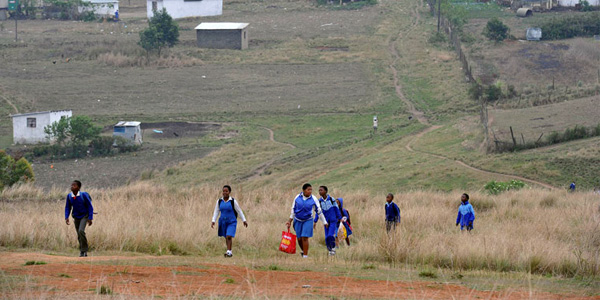
Support households and communities:

Protect workers:
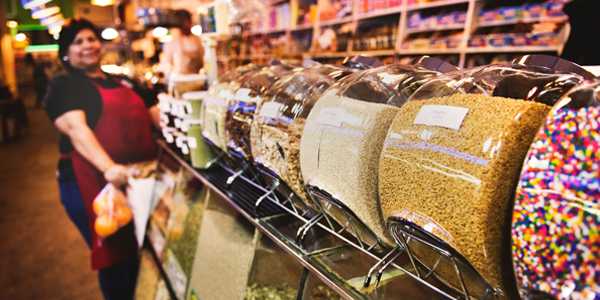
Sustain businesses:
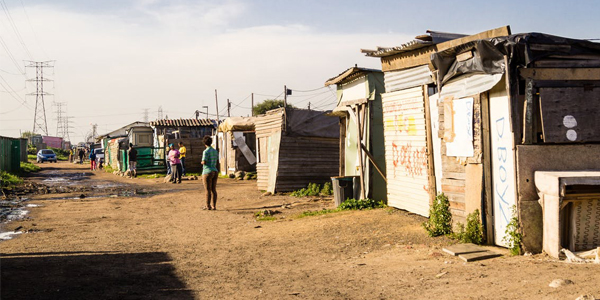
Strengthen public health interventions:
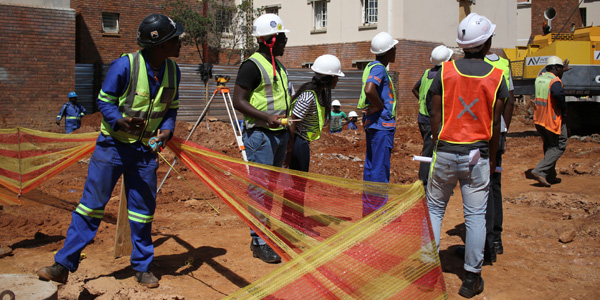
Strengthen the economy:
We appreciate the Temporary Employment Relief Scheme, which aims to prevent retrenchments while maintaining standards. In the past, however, ensuring rapid and effective scaling up of the scheme has proven difficult. It is crucial that implementation be prioritised in the current crisis.
These measures will require additional government financing. We appreciate the effort to mobilise funds outside the fiscus - such as the Industrial Development Corporation (IDC), Public Investment Corporation (PIC), Unemployment Insurance Fund (UIF). However, the scale of interventions required will necessitate additional fiscal and monetary expansion by the Treasury and SARB respectively, as has been the case worldwide. A concrete plan for responsibly managing this must be tabled, a number of signatories are working on proposals in this regard. In addition, we support your call for global transfers and action on the international level.
Commitment, implementation and responsiveness remain a major challenge. While swift action has been taken on health responses, economic interventions have been subject to delay, confusion and incoherence. We need to accept that as with health policy, some risks will need to be taken in this unprecedented situation.
While the Presidency must direct interventions, as far as possible the economic interventions should seek to empower communities, promote their mobilisation, and build social solidarity, as has been noted by a wide number of civil society organisations.
The Presidency must reassure the most vulnerable people and businesses that they will be protected.
This moment calls for all South Africans to contribute. We are willing to support in advancing these shared objectives. We would welcome the opportunity to put these proposals before yourself and the appropriate forums and provide additional technical support as needed.
Yours sincerely,
[List of Wits University authors(*):]
Professor Vishnu Padayachee - Distinguished Professor and Derek Schrier and Cecily Cameron Chair in Development Economics, School of Economics and Finance, University of the Witwatersrand
Dr Gilad Isaacs - Co-Director, Institute for Economic Justice and School of Economics and Finance, University of the Witwatersrand
Lumkile Mondi - Senior Lecturer, School of Economics and Finance, University of the Witwatersrand
Professor Imraan Valodia - Dean of Faculty of Commerce, Law and Management, University of the Witwatersrand
Professor David Everatt - Head of School, Wits School of Governance, University of the Witwatersrand
Professor Uma Kollamparambil - Head of School, School of Economics and Finance, University of the Witwatersrand
Professor Pundy Pillay - Professor of Economics, School of Governance, University of the Witwatersrand
Dr Laura Rossouw - Senior Lecturer, School of Economics and Finance, University of the Witwatersrand
Professor Mills Soko - Professor of International Business and Strategy, Wits Business School, University of the Witwatersrand
Professor Ben Fine - Visiting Professor of Economics, University of the Witwatersrand, and Emeritus SOAS
Dr Mthokozisi Mlilo - Senior Lecturer, School of Economics and Finance, University of Witwatersrand
Dr John Khumalo - Senior Lecturer, Wits School of Governance, University of the Witwatersrand
Halfdan Lynge-Mangueira - Senior Lecturer, Wits School of Governance, University of the Witwatersrand
Dr Nicolas Pons-Vignon - Senior Lecturer, School of Economics and Finance, University of the Witwatersrand
Cheryl-Lyn Selman - School of Economics and Finance, University of the Witwatersrand
Sibulele Nkunzi - Lecturer, School of Economics and Finance, University of the Witwatersrand
David Francis - Deputy Director, Southern Centre for Inequality Studies, University of the Witwatersrand
Thabo Dikobe - Lecturer, Wits Business School
Ayanda Magida - Researcher, Wits Business School
Professor Rod Crompton - Adjunct Professor, Wits Business School, University of the Witwatersrand
Rubina Jogee - Lecturer, School of Economics and Finance, University of the Witwatersrand
Mark Everett - Executive Manager CLEAR-AA, University of the Witwatersrand
Aroop Chatterjee - Southern Centre for Inequality Studies, University of Witwatersrand
Avril Joffe - Head of Department, Cultural Police and Management, University of the Witwatersrand
Tlhalefang Moeletsi - Researcher, School of Economics and Business Science, University of the Witwatersrand
Professor Stephanie Allais - Associate Professor and Director of the Centre for Researching Education and Labour, School of Education, University of the Witwatersrand
Professor Tshepo Madlingozi - Director of the Centre for Applied Legal Studies (CALS), University of the Witwatersrand
Professor Jackie Dugard - Associate Professor, School of Law, University of the Witwatersrand
Professor Firoz Cachalia - Adjunct Professor, School of Law, University of the Witwatersrand
Professor Tracy-Lynn Humby - Professor, School of Law, University of the Witwatersrand
Sonia Newton - Senior Programme Manager, Wits Business School, University of the Witwatersrand
Kemantha Govender - Communications Manager, School of Governance, University of the Witwatersrand
Professor Jonathan Klaaren - Professor, Wits Institute for Social and Economic Research (WiSER), University of the Witwatersrand
Professor Vishwas Satgar - Associate Professor, Department of International Relations, University of the Witwatersrand
Sibusisiwe Ndlovu - Exams Marking Officer, Wits School of Business, University of the Witwatersrand
Professor Ian Goldman - Professor, Centre for Learning on Evaluation and Results, University of the Witwatersrand
Professor Emeritus Edward Webster - Professor Emeritus, Department of Sociology, University of Witwatersrand
Zubeida Bagus - Business Manager, Faculty of Commerce Law and Management, University of the Witwatersrand
Sky Konrad, Finance Officer - CLEAR-AA, FCLM, University of the Witwatersrand
Professor Anthoni van Nieuwkerk - Peace and Security Studies, Wits School of Governance, University of the Witwatersrand
Professor Jill Bradbury, Associate Professor, Department of Psychology, University of the Witwatersrand
Professor Michelle Williams, Professor, Department of Sociology, University of the Witwatersrand
Professor Salim Akoojee, Associate Professor and Senior Researcher, REAL at University of Witwatersrand and School of Education at University of Nottingham
(*) The list continues to grow as the letter reaches more people.
Add your name here: https://forms.gle/ABha3hTcrPTqpmGN8
- Wits University
Message from the Deputy Vice-Chancellor: Academic on the resumption of the academic programme.
Dear Colleagues
I hope that you are all well and that you are taking the necessary precautions to keep safe!
I write to you in my capacity as the Deputy Vice-Chancellor: Academic to share the thinking of the Senior Executive Team (SET) on the resumption of the academic programme and also to solicit your ideas and advice on best practices in your area as we move into an online teaching mode. Please read carefully through the attached Emergency Plan for Teaching.
The SET met yesterday and agreed to the following schedule:
|
1-14 April 2020 |
All faculties will prepare to take the academic programme online. I know that many faculties are already off the starting blocks. |
|
15-19 April 2020 |
This period will serve as the online orientation period for staff and students. All course outlines, lecture notes, reading lists and additional audio-visual material should be uploaded and tested during this period. |
|
20 April 2020 |
The University opens for the second term and delivery of the academic programme begins online. |
Please note that the almanac is currently being updated (we are consulting with faculties) and will be finalised early next week.
I know that many academics are enthusiastic about taking the academic programme online while others are anxious about doing so. This is new for many people and I would like to assure you that we have established both central- and faculty-based teams to assist you through the process. I would like to acknowledge the great coordination that is taking place between colleagues in CLTD, ICT and the Library to ensure that staff and students are fully supported and assisted as we transition to online teaching. The Emergency Plan for Teaching (attached) provides a step-by-step guide on how to begin this journey.
We have also ensured that all our Learning Management Systems (LMS) including Wits-e (Sakai) and Moodle will be hosted in the Amazon cloud to ensure that our systems have sufficient infrastructural support and are able to cope with the large numbers of users accessing the systems.
We are mindful that approximately 10% - 15% of our students may not have access to smart mobile devices (according to the results of biographical questionnaires conducted over the last four years by our Business Intelligence Unit), and Deans have been asked to develop plans to take this reality into account.
There is no doubt that we will have to consider additional support for students when we are able to resume contact teaching. This could take a variety of formats including additional lectures, boot camps, comprehensive laboratory sessions and tutorial support as required.
These solutions have been necessitated by the pandemic and have had to be devised quickly. We know that they are not perfect, and we are acutely aware that there is unevenness across disciplines, schools and faculties in the adoption of online teaching. In many cases, this is dictated by the particular demands of the programmes offered. However, we have to do all that we can to provide our students with a quality teaching experience so that we do not lose the academic year.
I am confident that we have some of the best academics in the sector, and coupled with our determination, resilience and ability to adapt to change, we will without a doubt succeed in these endeavours.
I envisage that there may well be some barriers along the way, but I also believe that we are well positioned to find solutions to the challenges that we may face.
Please feel free to write to me at Ruksana.Osman@wits.ac.za to share any suggestions or best practices that could be useful during this time.
Keep Safe!
Professor Ruksana Osman
Deputy Vice-Chancellor: Academic
1 April 2020
- Wits University
Message from the Deputy Vice-Chancellor: Academic regarding the resumption of the academic programme.
Dear Students
I hope that you are all well and that you are taking the necessary precautions to keep safe!
I know that many students are anxious about resuming the academic programme and doing so online.
The Senior Executive Team (SET) met recently and agreed to the following schedule:
|
1-14 April 2020 |
All academics will prepare to take lectures online. |
|
15-19 April 2020 |
Online orientation begins this week for staff and students. All course outlines, lecture notes, reading lists and additional audio-visual material will be uploaded and tested during this period. |
|
20 April 2020 |
The University opens for the second term and delivery of the academic programme begins online. |
The almanac is currently being updated (we are consulting with faculties) and will be finalised early next week.
Learning Management Systems
All our Learning Management Systems (LMS) including Wits-e (Sakai) and Moodle will be hosted in the Amazon cloud to ensure that our systems have sufficient infrastructural support and that they are able to cope with large number of users accessing the systems at the same time.
Access to Smart Mobile Devices
We are aware that approximately 10% - 15 % of students may not have access to smart mobile devices (according to the results of the biographical questionnaires conducted over the last four years by Wits’ Business Intelligence Unit), and Faculties and Deans have been asked to develop specific plans in this regard.
Broadcast Options
We are exploring working with the SABC (Radio and Television), DStv and eTV to determine if it is feasible to broadcast key lectures on-air, particularly for those who do not have access to devices or data.
Access to Data and ICT Support
Wits has worked with Telkom, Vodacom and MTN to ensure that students can access selected learning sites without using data. Cell C is due to come on board shortly. All services will be activated within the next ten days. For a complete list of the zero-rated sites, visit: https://www.wits.ac.za/mywits/zero-rated-data-to-students-and-applicants/. Please note that students must have at least R1 worth of data loaded on a SIM card in order to access these sites. If you have any queries or concerns, please contact the ICT Service Delivery team via ithelp@wits.ac.za or call (011) 717-1717 or log a call via https://witshelp-ism.saasiteu.com/.
Faculty Support
You will receive a more detailed letter from the Dean of your respective Faculty later this week, followed by additional information from your School/Department and/or course coordinators. Please feel free to share your views on potential online/digital learning solutions with your respective faculties.
Additional Support
There is no doubt that we will offer additional support for students when we resume contact teaching. This could include additional lectures, boot camps, comprehensive laboratory sessions and additional tutorial support as appropriate.
Conclusion
We live through extraordinary times and have to develop extraordinary ways of teaching and learning. Our solutions may not be perfect but I would like to assure you that our academics and professional staff are working hard every day to ensure that we deliver a quality teaching and learning experience under the current circumstances. I know that you too will try your best to succeed. I have no doubt that we can overcome the many barriers that we will face and that together we can succeed.
Keep safe!
Professor Ruksana Osman
Deputy Vice-Chancellor: Academic
1 April 2020
- Dr Ajwang' Warria, Wits Department of Social Work
Strategies for parents to engage with their children at home during Covid-19 lockdown.

The national lockdown as a result of the coronavirus started in South Africa at 23:59 on Thursday, 26 March. Exposure to uncertainty has heightened anxiety levels and stretched the care and protection mechanisms normally provided at home.
Children, in particular, are vulnerable to the extraordinary circumstances of lockdown, social distancing, and a global pandemic.
The United Nations Convention on the Rights of the Child (UNCRC) indicates special obligations for the caregivers of children in times similar to these. The best interest principle stresses that children should be assisted and protected at all times and their developmental needs met.
Covid-19 presents parents and caregivers an opportunity to deepen their participation in the lives of their children, mitigate harmful consequences and thereby safeguard their children's futures.
The impact that the coronavirus might have on children will vary and their responses could be influenced by factors such as gender, social support, age, inherent resilience, and level of exposure to the virus. What remains evident is that children tend to rely on parents for their emotional needs. Thus, parents (and any primary caregivers) can play a crucial central role as children’s sources of safety, security, and information.
The family is one of the most important systems of a child’s life. The collective nature of care that happens within the home setting is crucial, as many people, including children, look to their family for support when they face challenges. Social and cultural factors influence the care that people give and receive within these networks of care.
Here are some strategies for parents to engage with their children at home during Covid-19 lockdown. These strategies are drawn from a published study, which investigated strategies used by parents in Kenya to support children during terrorism acts:
RESOURCES:
Department of Health – Covid-19 webpage
South African Depression and Anxiety Group
- Wits University
A poster series to action South Africans on how to care of themselves and others.
Wits University students who participated in the South African leg of FameLab, an international science competition, helped to translate a series of posters with a key messages on how every South African’s actions can save lives.
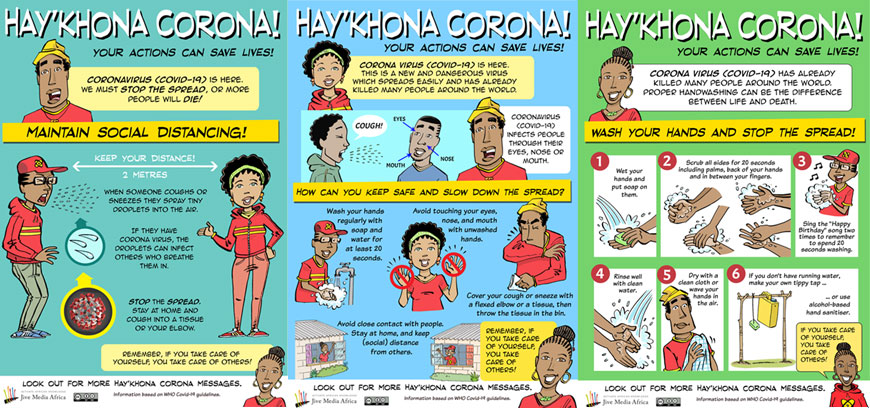
The multilingual posters were produced by research communication specialists Jive Media Africa, and are published with a Creative Commons license so you are free to copy, print and share them (provided no modifications are made).
“Altruism is a strong motivator” says Jive Media Africa Director Robert Inglis, “People are looking for ways they can help, and sharing relevant, relatable messages is one of those ways.”
Hay’khona is an isiZulu expression signalling strong negative sentiment. Inglis says the posters say:
No, not here! to COVID-19
The posters have been translated into a number of languages from South Africa and other African regions, including IsiZulu, IsiXhosa, Setswana, Sesotho, Sepedi, SiSwati, Tshivenda, Xitsonga, Afrikaans, Yoruba, Luo and French.
https://jivemedia.co.za/science-spaza/haykhona-corona-spreading-the-word-not-the-virus/
- Wits University
The Wits School of Molecular and Cell Biology has donated medical gloves for frontline healthcare workers at Chris Hani Baragwanath Hospital in Soweto.
Healthcare workers treating COVID-19 patients urgently require medical gloves for their own protection and to avoid contamination. However, gloves and other personal protective equipment (PPE) is in short supply.
The Director-General of the World Health Organisation (WHO) highlighted in his media briefing on 27 March 2020 that the chronic global shortage of PPE is one of the most urgent threats to our collective ability to save lives.
Prof. Yasien Sayed in the Protein Structure Function Research Unit (PSFRU) in the School of Molecular and Cell Biology coordinated the donation effort. Sayed was alerted to the critical need after Wits Medical School graduate, Dr Naeem Vallee, a first-year intern doctor at the hospital, relayed the shortage via a colleague whose wife is a Wits PhD candidate whom Sayed supervises.

Through the collective efforts of Sayed, Dr Pieter De Maayer, Dr Angela Botes and Dr Vanessa Meyer, a total of 56 boxes each containing 50 pairs of gloves were donated.
“At the moment, the Department of Internal Medicine at Chris Hani Baragwanath are full in the swing of preparing to deal with the impending COVID onslaught. Three wards have been specifically isolated to host and rehabilitate and treat the patients that will come back as COVID positive. It’s an extremely tense time. The lack of personal protective equipment is huge challenge we as healthcare practitioners face in dealing with this pandemic,” said Vallee, who took delivery of the donated gloves. Vallee graduated MBBCh from Wits in 2019.
“I’m extremely grateful to Prof. Sayed and his colleagues for recognising that we on the frontline need help, and for his generosity. This is a time where we all need to work together to prevent the spread and flatten the exponential growth curve of the COVID pandemic.”
Sayed, who personally delivered the boxes to the hospital, says: “The donation of gloves represents a small token of our appreciation of our healthcare workers’ selfless and admirable efforts, and we hope that these gloves will afford them some measure of protection against the virus.”
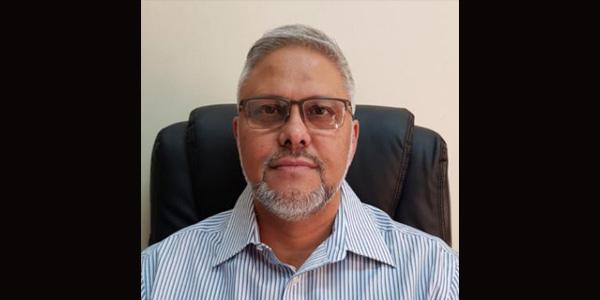
The SARS-CoV-2 virus, the novel type of a coronavirus that causes coronavirus disease (COVID-19), has several glycoproteins on its surface. One of these proteins is referred to as the ‘spike’ protein, which is responsible for binding to receptors on the host cell prior to infecting the cell and hijacking the host’s cellular machinery for replication and reproduction of new viral particles.
The PSFRU investigates the structures, dynamics and energetics of a variety of proteins using a multidisciplinary approach that relies on the principles and methodologies of biochemistry, biophysics, molecular, and structural biology and bioinformatics.
Prior to announcement of the lockdown on 26 March 2020, the School had manufactured and dispensed 70% EtOH (ethanol) surface disinfectant freely to Wits staff to minimise contamination by the coronavirus. The disinfectant comprises 95% industrial ethanol (also called alcohol) diluted with distilled water to a ratio of 70%. Alcohol kills germs effectively, as long as alcohol comprises 60% to 95% of the solution. This is a ratio shown to be effective against germs. Alcohol attacks and destroys the ‘envelope protein’ that surrounds some viruses, including coronaviruses. This protein is vital for a virus’s survival and multiplication.
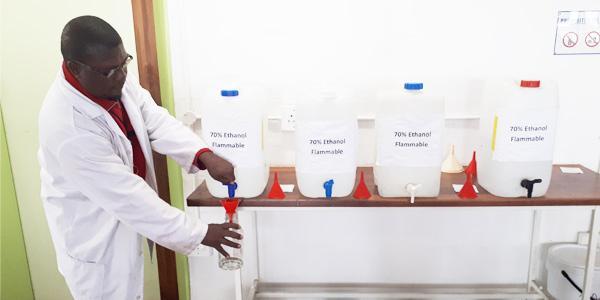
“We use 70% ethanol to sterilize surface areas when we are required to work under sterile conditions in our laboratories, for example, when we do tissue cell culture work. The ethanol is effective in killing a number of germs, including viruses. Cleaning all objects and surfaces that we come into daily contact with is a sensible practice to protect against coronavirus,” says Prof. Marianne Cronjé, Head of the School of Molecular and Cell Biology.
- Wits University
A new COVID-19 Testing Station at Wits, managed by Gift of the Givers, is open to patients who fit NICD criteria and are referred by a doctor.
Wits University and the Gift of the Givers Foundation have opened a COVID-19 Testing Station on the Braamfontein Campus (Enoch Sontonga Road).
Gift of the Givers manages the testing station, while Mullah Laboratories co-ordinates the sites and reports to the National Institute for Communicable Diseases (NICD) and provides results to the referring doctor.
Tests will be conducted in an NICD approved, SANAS accredited laboratory with feedback to the NICD electronically. The turnaround time for results is between 24 and 48 hours.
No fees will be earned by Wits University or Gift of the Givers. The fee simply facilitates a more affordable price for the public.

- Wits University
The University’s wellness support services are here to help staff, students and the Wits community in dealing with the disruption of our normal lives.
Dear Colleagues and Students,
South Africa is about to complete its first week of the national lockdown. We wish to remind Witsies to continue protecting themselves, their families and the broader community by observing the call to #StayHomeSA in a bid to slow down the number of infections in the country. Sadly, many individuals and families are finding it hard to deal with the disruption to normal life during this period. It is normal and expected during difficult times.
The University’s wellness support services such as the staff counselling line, the Counselling and Careers Development Unit (CCDU) and the Gender Equity Office are available to assist during the lockdown.

The following services are thus available to Witsies:
The CCDU Lockdown Wellness Chronicles offers daily coping strategies that can be used by all. The site has daily prompts to help structure and regain control of life and also to prepare for normalcy. Visit the CCDU website for more information on various mental health and wellness topics.
Students who would like to contact a counsellor for either personal, career or life coaching purposes can email the CCDU and leave their contact details and one of the team’s professionals will respond. Email info.ccdu@wits.ac.za.
The Wits Student Crisis Line is available to all Wits students for counselling 24/7/365 on 0800 111 331.
The Campus Health and Wellness Centre is available to assist with primary healthcare and mental health enquires:
- Primary healthcare enquiries – Call 0743077259 or 0824832251
- Mental health enquiries – Call 0766093924
The Impil’enhle programme launched by the University in September 2019 offers free services for staff and their immediate families to receive counselling for stress, anxiety, relationship and marriage problems, parenting, abuse, trauma as well as legal and financial advice. This independent service offered through Kaelo Lifestyle is provided in all South African languages 24/7 days a week.
Call 0861 635 766 OR dial *134*928 OR Send a ‘Please call Me’ to 072 620 5699 OR email asknelson@kaelo.co.za
Should you suspect that you have COVID-19, please contact the COVID-19 Medical Line during work hours for medical-related advice on prevention, diagnosis and treatment options - call 0861 493 587 and select option 2 for members and then select option 6. Alternatively, contact the National Institute for Communicable Diseases (NICD) on 0800 029 999. Still unsure about how to monitor yourself for symptoms of COVID-19?
During this time of lockdown and looking after ourselves and our communities, we realise that there are some who will be in spaces where they are not safe. The Gender Equity Office is available via email info.geo@wits.ac.za or call (011) 717 9790. Alternatively, call the national gender based violence command centre on 0800 428 428 or send a "Please Call Me" to *120*7867#. It is important to remember that should you require a restraining order, courts continue to operate for this purpose. The GEO is available to guide you through the process and prepare you for what to expect when you apply for the order.
Busting Myths
There are many myths circulating around the transmission and prevention of the coronavirus. Wits Lecturer Neelaveni Padayachee from the Department of Pharmacology explains the myth around drinking alcohol to prevent the virus.
Helping children cope with changes
The impact that Covid-19 might have on children will vary and their responses could be influenced by factors such as gender, social support, inherent resilience and the level of exposure to the virus. Dr Ajwang' Warria, a Senior Lecturer in the Department of Social Work offers guidelines on how to help children during this period. Read the article.
Coronavirus posters in multiple languages
There is a series of educational posters (some translated by Wits students) on coronavirus is available in multiple languages. Download, print or share the following resources in Sepedi, Sesotho, Setswana, siSwati, Tshivenda, Xitsonga, Afrikaans, IsiXhosa, IsiZulu and English.

Remember to practice good hygiene and to maintain physical distancing.
Stay safe
Wits COVID-19 Management Committee
2 April 2020
- Wits University
The Centre for Deaf Studies (CFDS) at Wits is contributing to society by keeping the Deaf community informed about the coronavirus pandemic.
Thee COVID-19 pandemic has spread at an alarming rate over the past few weeks in the country. To date, over 1400 cases of COVID-19 cases have been confirmed in South Africa.
Government, media houses and various institutions have been disseminating important information and updates with the public around COVID-19 through various platforms.
To ensure that the Deaf community gained access to crucial information on the global pandemic, the CFDS at Wits has been playing an active role through a number of initiatives that filtered information to the Deaf and hard of hearing communities in South Africa.

When the President addressed the nation on 15 March, the CFDS ensured there was a full live stream interpreting by a Deaf person through the use of relay interpreting – a practise of translating messages from one language to another through a third language for a targeted audience.
“Deaf to Deaf communication is the best way of getting such crucial information across,” says Professor Claudine Storbeck, Director for CFDS.
In an effort to raise awareness around COVID-19, the Centre also produced “Corona Info for kids”, an educational video for children teaching them about the deadly virus. The aim of the video was to make information accessible for deaf children in a deaf appropriate way that would make an impact, which also included a fun handwashing-alphabet clip.
In recent weeks, since the coronavirus outbreak in South Africa, CFDS has been offering and sharing information through these videos in South African Sign Language (SASL) to ensure the Deaf Community could access information in their first language.
“In any form of crisis or trauma, people communicate best in their 'mother tongue' and therefore we are making sure that information is available in SASL. ‘If you talk to a man in a language he understands, that goes to his head. If you talk to him in his own language, that goes to his heart.’ This quote from Madiba is so appropriate when it comes to including the Deaf community in our planning around this pandemic,” says Storbeck.
While the focus is on the Deaf community, the Centre has added subtitles to the videos to create inclusivity and enable Deaf and hard of hearing people to watch and share these videos with their hearing family and friends. Here is a list of the videos produced by CFDS for the Deaf community:
With a week into the 21-day lockdown to reduce the spread of coronavirus, the Centre has cancelled their contact home-based support for families of deaf infants and young children (HI HOPES) and will be offering support via WhatsApp and videos. A five-week online SASL course will be released next week for hearing people wishing to learn about Deaf culture and how to communicate with the South African Deaf community without leaving their homes. A dedicated WhatsApp hotline (074 029 2764) has also been set up for Deaf children and adults to send their questions on the lockdown via either text or video. The hotline can be accessed via WhatsApp. Enquiries: claudine.storbeck@gmail.com
- Wits University
Best way to tackle COVID-19 remains physical distancing, substantially increased testing and quarantining.
Professor Shabir Madhi (*) delivered the following presentation to the Wits University Council on Friday, 3 April 2020. He emphasised that the best way to tackle COVID-19 is through physical distancing, substantially increasing testing and quarantining.
View his presentation here (PDF):
COVID-19 PRESENTATION TO THE COUNCIL OF THE UNIVERSITY OF THE WITWATERSRAND

(*) Shabir Madhi is Professor of Vaccinology and Director of the MRC Respiratory and Meningeal Pathogens Research Unit at Wits University.
- Wits University
Crowdhelix is an internet tool designed to help researchers develop partnerships and collaborations.
Strategic Partnerships in the Wits Research Office purchased Crowdhelix in March as a tool for Wits academics.
“A helix is the focus area for European Horizon 2020 funding programmes,” says Dr Robin Drennan, Director: Research Development at Wits.
Crowdhelix is an Open Innovation platform connecting an international network of universities, research organisations, and companies. The platform currently hosts over 3910 active research and innovation professionals, from over 600 leading institutions and companies worldwide, including Wits University.
Dr Mahomed Moolla, who leads the Strategic Partnership Office, says: “In about a week 50 Wits researchers have embraced this new tool looking to continue collaborating worldwide during lockdown. There has been good uptake of the crowdhelix by Wits researchers, which bodes well for ongoing international research collaboration and potentially funding, particularly during a pandemic.”
Crowdhelix currently hosts 23 active 'helices', which are international communities of researchers and innovators collaborating on a particular topic.
These helices include: Covid-19; health; food; climate; digital energy; materials; quantum; space; smart cities; and water, amongst others.
- Wits University
A global study has found that setting up ‘Covid-19 free’ hospital areas for surgical patients could save lives during the second wave of the pandemic.
Researchers in the Faculty of Health Sciences at Wits working in University-affiliated hospitals contributed to the study that found that patients who had their operation and hospital care in ‘Covid-19 free’ areas had better outcomes.
‘Covid-19 free’ areas were set up both in smaller, independent hospitals and large hospitals with emergency departments. ‘Covid-19 free’ areas improved the safety of surgery by having a strict policy that no patients treated for Covid-19 were mixed with those undergoing surgery. Such protection areas reduced the risk of death from lung infections associated with coronavirus.
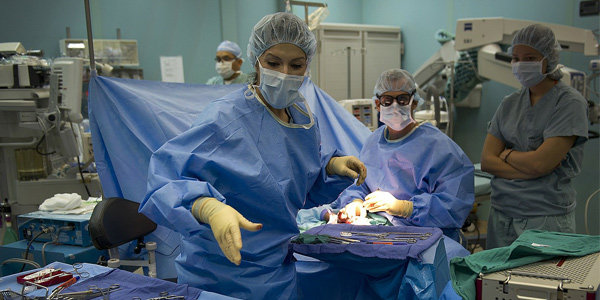
The global study by the COVIDSurg Collaborative, led by the University of Birmingham, comprises experts from over 130 countries, including South Africa. The Collaborative published findings in the Journal of Clinical Oncology on 6 October 2020.
“These study findings are applicable to the South African context in that cancer surgery can safely continue in the face of the Covid-19 pandemic, with protection of both patients and staff, by keeping Covid-19 patients and patients needing cancer surgery separated by having designated Covid-19 areas in the hospital,” says Dr Rachel Moore, Johannesburg Hub Lead of the National Institute for Health Research (NIHR) Global Health Research Unit on Global Surgery.
Moore is a specialist surgeon and Head of Acute Care Surgery at Chris Hani Baragwanath Academic Hospital and an Associate Lecturer in Surgery in the School of Clinical Medicine at Wits.
Millions of patients around the world had their surgery delayed because of coronavirus. However, surgery for conditions such as cancer must continue despite the threat of a second wave. When operations for cancer and other time-dependent surgeries are delayed, these diseases can progress towards untreatable.
Cancer surgery is essential surgery and was thus (and continues to be) consistently prioritized at Wits-affiliated hospitals, even during the peak in Covid-19 numbers in Gauteng. As a second wave approaches, more patients face delays. This study has shown, for the first time, that hospitals around the world can continue safe surgery by setting up ‘Covid-19 free’ areas to minimise the risk from the coronavirus.
“As health providers restart elective cancer surgery, they must look to protect cancer surgery patients from harm by investing in dedicated 'Covid-19 free' hospital areas. These can be tailored to the resources available locally, ensuring that patients treated for Covid-19 are not mixed with patients needing surgery,” says Dr Aneel Bhangu, Collaborative lead at the NIHR Global Health Research Unit on Global Surgery at the University of Birmingham.
"However, this represents a significant challenge to many hospitals around the world. Governments and hospital providers must help to fund this major international redesign of surgical services and provide protection for patients. 'Covid-19 free' areas could save many lives during future waves by allowing surgery to continue safely despite high rates of infection in the community.”
Therefore, the approach taken in South African hospitals was to continue with cancer surgeries but to keep Covid-19 patients and patients admitted for essential elective surgery separated in different areas of the hospital.
“The findings of this study confirm that this approach [‘Covid-19 free’ areas] was both justified and necessary for mitigating the risk from Covid-19 in patients undergoing cancer surgery. This response should be maintained as a pragmatic response to balancing the risk of delaying cancer surgery and the risk of Covid-19 infection,” says Moore.
Researchers examined data from 9171 patients in 55 countries, across 5 different continents from the start of the pandemic up the middle of April 2020.
It covered adult patients undergoing elective surgery with curative intent for a range of suspected cancers including bowel, gullet, stomach, head and neck, lung, liver, pancreas, bladder, prostate, kidney, womb, cervix, ovarian, breast, sarcoma and brain tumours.
Despite the finding that pulmonary complication (2.2% vs, 4.9%) and rates of death after surgery (0.7% vs 1.7%) were lower for patients who had their hospital treatment in ‘Covid-19 free’ areas, in this study, just 27% of patients had their care in these protected areas.
“Major reorganisation of hospital services to provide 'Covid-19 free' areas for elective surgery must be justified by evidence like this. We have proved that those efforts are essential in protecting patients undergoing surgery during the pandemic. Our data showed that 'Covid-19 free' hospital areas were beneficial when the rate of infection in the community was both low and high," says Dr James Glasbey, Study Lead at the University of Birmingham."However, overcoming the challenges of setting up such pathways, including separate hospitals to provide elective surgery, may lead to unintended consequences. Consequences for hospitals must be carefully monitored to achieve the best balance of healthcare for patients.”
Participating countries included: Argentina, Armenia, Australia, Austria, Azerbaijan, Barbados, Belgium, Brazil, Canada, Chile, Colombia, Croatia, Cyprus, Czech Republic, Denmark, Egypt, Ethiopia, Finland, France, Germany, Greece, Hong Kong SAR, China, Hungary, India, Ireland, Italy, Japan, Jordan, Libya, Madagascar, Malaysia, Mexico, Morocco, Netherlands, Nigeria, Oman, Pakistan, Peru, Poland, Portugal, Puerto Rico, Reunion, Romania, Russian Federation, San Marino, Saudi Arabia, Serbia, Singapore, Slovak Republic, South Africa, Spain, Sweden, Switzerland, Turkey, United Kingdom, United States, Uruguay
The study was funded by a National Institute for Health Research (NIHR) Global Health Research Unit Grant, which awarded £7 million to the University of Birmingham to establish the NIHR Global Health Research Unit on Global Surgery
This unit conducts multi-country randomised controlled trials testing interventions to reduce surgical site infection (SSI) across a range of low- and middle-income countries. The unit has established sustainable partnerships with the aim of leveraging global policy change at hospitals including at the Wits University-affiliated Chris Hani Baragwanath Academic Hospital, Johannesburg, South Africa.
- Wits University
Initiatives such as the pharmacy set up in the Holy Trinity Church ensured that the homeless and elderly receive healthcare and essentials during lockdown.
The Covid-19 pandemic continues to peak around the world and South Africa is not spared. Many people continue to be vulnerable to the current socio-economic conditions that are exacerbated by the pandemic, such as limited access to healthcare and necessities. The Wits Senior Executive Team set out to recognise individuals and teams whose selfless contributions made an impact on the lives of people during the 2020 national Covid-19 lockdown.
Moosa Kharodia, an Associate Lecturer in the Wits Department of Pharmacy and Pharmacology is an individual who has led various community outreach programmes, even prior to the pandemic. He says that the consequences of the pandemic opened his eyes to the heart-breaking reality of the gaps that community-centred initiatives bridge.

He says that his initial reaction after the announcement of the level 5 lockdown was that of shock. “I had been working with the homeless, disabled and elderly, and my mind raced at the havoc and destruction that the hard lockdown would have on already marginalised communities”.
Through his role as the departmental Work-Integrated Learning (WIL) programme coordinator, Kharodia became the responsible pharmacist of the Trinity Health Services Pharmacy at the Holy trinity Church in Braamfontein, where he supervises students who provide healthcare services and medication to the homeless.
Due to the lockdown, the basic healthcare that the pharmacy was providing to the homeless was halted, which had a great impact on their access to the essential services. “A large proportion of our patients have no basic rights as they lack identification. Without NGOs, outreach programmes and departments like ours, they are left to fend for themselves,” he explains.
To provide holistic support to marginalised communities such as the homeless and those in care centres and old age homes throughout the City of Johannesburg, Kharodia has played an active role in setting up coordinated programmes that provide hand sanitisers, flu vaccinations, blankets and food parcels, amongst other items. In the low-resourced context of the 2020 lockdown, he sought assistance from corporate partners to ensure that necessities to safeguard against the spread of Covid-19 in such communities were equally prioritised.
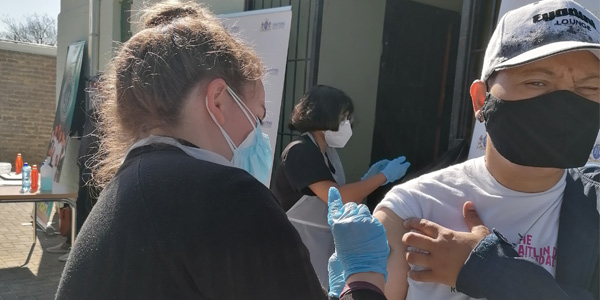
Fundraising was a difficult task and the reduced economic activities in the country at the time meant that companies that would have ordinarily supported such work were reluctant to give financial support due to uncertainty.
“At the time we had forged great working relationships with a pharmaceutical company as well as the transformation directorate at the office of the Premier, and we immediately started to spearhead and activate various Covid-19 centred community initiatives with the assistance of these players as well as community elders, business and religious groups”.
He says that this support came at a critical time as various organisations started to request assistance when the lockdown came to effect. Together with his fellow nominee and the Head of the Wits Department of Pharmacy and Pharmacology, Professor Yahya Choonara, they became proactive in searching for funds for the initiatives. They also became involved in the provision of PPE packs to members of the community.
Kharodia joined other initiatives including a programme to educate communities about Covid-19 and to protect themselves from exposure. His work, and that of the many Wits Health Sciences student volunteers who assisted in these programmes and in hospital pharmacies to bolster capacity is an exceptional reflection of a community at work for the good of all, which is applauded.
“I plan to continue all the initiatives we have started and have activated further community outreach programmes together with foundations that already exist and that need a lending hand,” he concludes.
- Wits University
An empath and social justice agent for students, Thembelihle Dlamini is among many unsung Covid-19 heroes at Wits.
A selfless, caring and resilient spirit was required in the University when South Africa went into its very first lockdown in 2020 amidst the growing number of Covid-19 cases and panic in the country.
The University was forced to go into early recess, halting academic and social activities on campus. The abrupt disruption meant that students were vulnerable, and especially those with limited resources who suddenly had to make their way home. The responsibility of ensuring that all students residing on campus were sent home safely in a short period of time, landed on the desk of Covid-19 Hero Thembelihle Dlamini.
Dlamini, a Project Manager in the Office of the Dean of Student Affairs, became the main point of contact for local students in need of assistance as well as international students, who were on the backfoot as all domestic and international travel had been banned. Those who could not make it home in time were housed in Yale Village, the University’s residence with appropriate support and food supplies.

“I witnessed students going through the most difficult times. Students at the university come from all parts of the country - some very rural - and with different socioeconomic statuses,” says Dlamini.
When it became evident that the national lockdown would be extended and contact classes would be suspended indefinitely, Dlamini soon found herself serving as the nerve center of facilitating access to devices required for online learning. The entire laptop allocation programme was coordinated remotely and after wading through thousands of queries, and enduring many sleepless nights, it was successful.
As the lockdown eased and students were slowly allowed back to campus, Dlamini played a crucial role in promoting the academic success and wellbeing of students by meticulously managing the applications of students requesting to return to residence on compassionate grounds based on their socioeconomic circumstances.
One of the anonymous grateful students wrote: “Ms Thembelihle is the embodiment of a Hero, in my own interpretation, she is a Helpful, Effective, Reliable and Outstanding individual; her work ethic speaks for itself”. Dlamini was similarly lauded by a staff member for helping to facilitate the transition to online learning.
Dlamini has spent her life at Wits as a very resourceful student development practitioner in various units and has always been passionate about young people. She says that her office is a trusting space to help students at all times.
Although her job is emotionally taxing and sometimes difficult, making a difference, even in a small way keeps her inspired. “It is always satisfying knowing that my efforts are not in vain and that they make a difference in the lives of our many students. What keeps me at Wits is knowing that I work for a university that cares for its students and that the economic and societal challenges will be overcome if we all – students and management - work in a cohesive manner,” concludes Dlamini.
- Wits University
A review of Covid-19 vaccines during pregnancy by Wits scientists shows that vaccination during pregnancy is safe.
The narrative review found that no major safety concerns on the use of mainly messenger RNA (mRNA) Covid-19 vaccines in pregnant women had been identified.
"Although the current Covid-19 vaccines were not tested in pregnant women in the initial clinical trials, information on the safety, immunogenicity and effectiveness of these vaccines has been generated from observational studies," says lead author of the review, Professor Marta Nunes of the Vaccines and Infectious Diseases Analytics (Wits VIDA) research unit in the Faculty of Health Sciences.
The fact that coronavirus disease during pregnancy is associated with higher risk of stillbirth and preterm birth prompted the review.
The review showed that pregnant women mount immune responses to Covid-19 mRNA vaccines comparable to non-pregnant counterparts.
In addition, anti-SARS-CoV-2 IgG [antibodies] were detected in cord-blood following maternal vaccination at concentrations strongly correlated with both maternal antibody levels and the time elapsed since vaccination.
The peer-reviewed evaluation was published in Trends in Molecular Medicine on 3 May 2022.
Messenger RNA vaccines, such as those made by Pfizer and Moderna, use genetically engineered mRNA to give cells instructions of how to make the S protein that is found on the surface of the Covid-19 virus.
Vector vaccines, on the other hand, such as those made by J&J and AstraZeneca, work by placing a modified version of a virus (a vector) – that is different to the virus that causes Covid-19 – into the cells, which then instructs the body to make copies of the S protein and thus provoke an immune response.
"Vaccination of pregnant women with mRNA Covid-19 vaccines has been shown to be effective in protecting these women against coronavirus disease," says Nunes.
However, further studies of the effect of other Covid-19 vaccines commonly used in South Africa – and specifically in an African context – are required.
Nunes says that most of the Covid-19 vaccine studies she reviewed were conducted in the US and Israel, and a handful in Europe. But there were no studies on the effect of Covid-19 vaccines on pregnant women in low- and middle-income countries (LMICs).
“The review looked mostly at mRNA vaccines, but on the African continent we use many other types of Covid-19 vaccines, such as J&J and AstraZeneca. Furthermore, the population genetics in LMICs, comorbidities, and lifestyles differ from other countries, so we need studies on the long-term effects of the vaccines used in an African context,” says Nunes.
Covid-19 vaccine research continues a-pace and changes rapidly. Although the Wits VIDA review focused on pregnant women, Nunes says there is some literature from the Global North on the effect of Covid-19 vaccines on breastfeeding women.
These studies suggest that the Covid vaccines are safe to use while breastfeeding and that antibodies are actually found in breast milk, thus possibly conferring some protection to infants.
“In South Africa, the recommendation is for pregnant and breastfeeding women to be vaccinated against Covid-19,” says Nunes.